Twenty-Five Bronze Statuettes
Artist: Unknown
Date: Late Period (XXV-XXVI dynasties); Greco-Roman Period (3rd century B.C.-2nd century A.D.)
Classification: Statuette
Dimensions: Various
Materials: Bronze
Adopted By: The Florida Chapter
Description
HIGH PRIORITY PROJECT
Bronze statuary constitutes one of the most characteristic artistic forms of Pharaoh dynastic Egypt. The statuettes belong to different categories. There are votive figurines (offerings presented to temple gods following a fulfilled request ex voto), decorative elements, parts of objects made of bronze and wood, and animal sarcophagi (containers for mummified animals). The dating is problematic because there is a lack of context for their discovery. They are generally dated between the Late Period (XXV-XXVI dynasties) and the Greco-Roman Period (3rd century B.C. - 2nd century A.D.).
TOTAL COST: € 25.354,04 ($ 24,781,03)
Restoration Procedures
-
Conservation assessment
-
Removal of old interventions (welds, resins, and waxes)
-
Mechanical and chemical cleaning
-
Treatment for metal stabilization
-
Design of new exhibition supports
Detail
Inventory N°: 18637, 18707, 20622, 20629, 20631, 37212, 37217, 37231, 37236, 37239, 37247, 37283, 37301, 37370, 37374, 37378, 37388, 37389, 37394, 37401, 37407, 37414, 37419, 37424, 37598
Artist: Unknown
Date: Late Period (XXV-XXVI dynasties); Greco-Roman Period (3rd century B.C.-2nd century A.D.)
Dimensions: Various
Materials: Bronze
Department:
Egyptian and Near Eastern AntiquitiesCurators:
Dr. Alessia Amentamuseum:
Gregorian Egyptian MuseumLaboratories:
Metals & CeramicsWishbook year: 2023
Twenty-Five Bronze Statuettes - Final Restoration Report
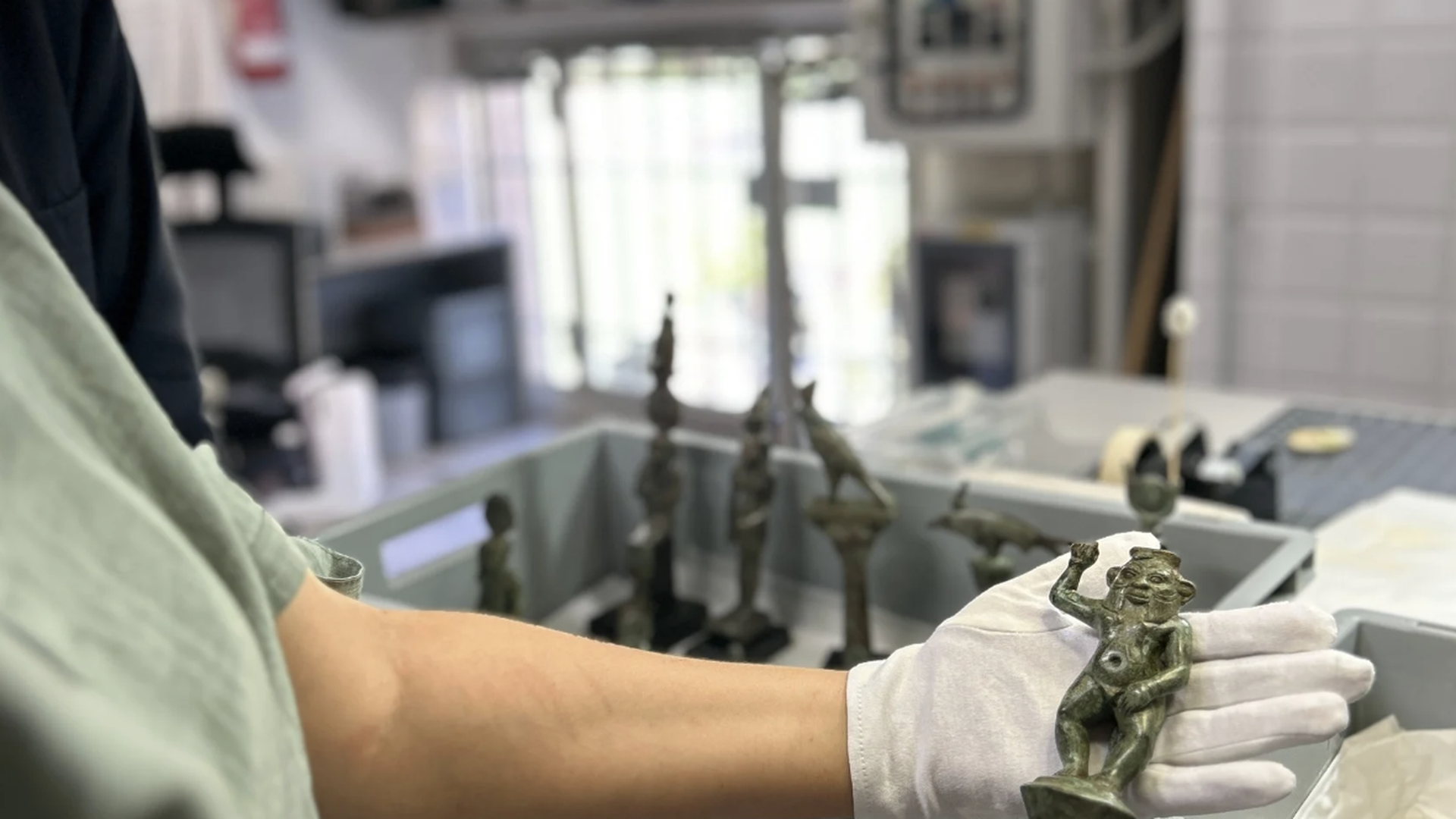
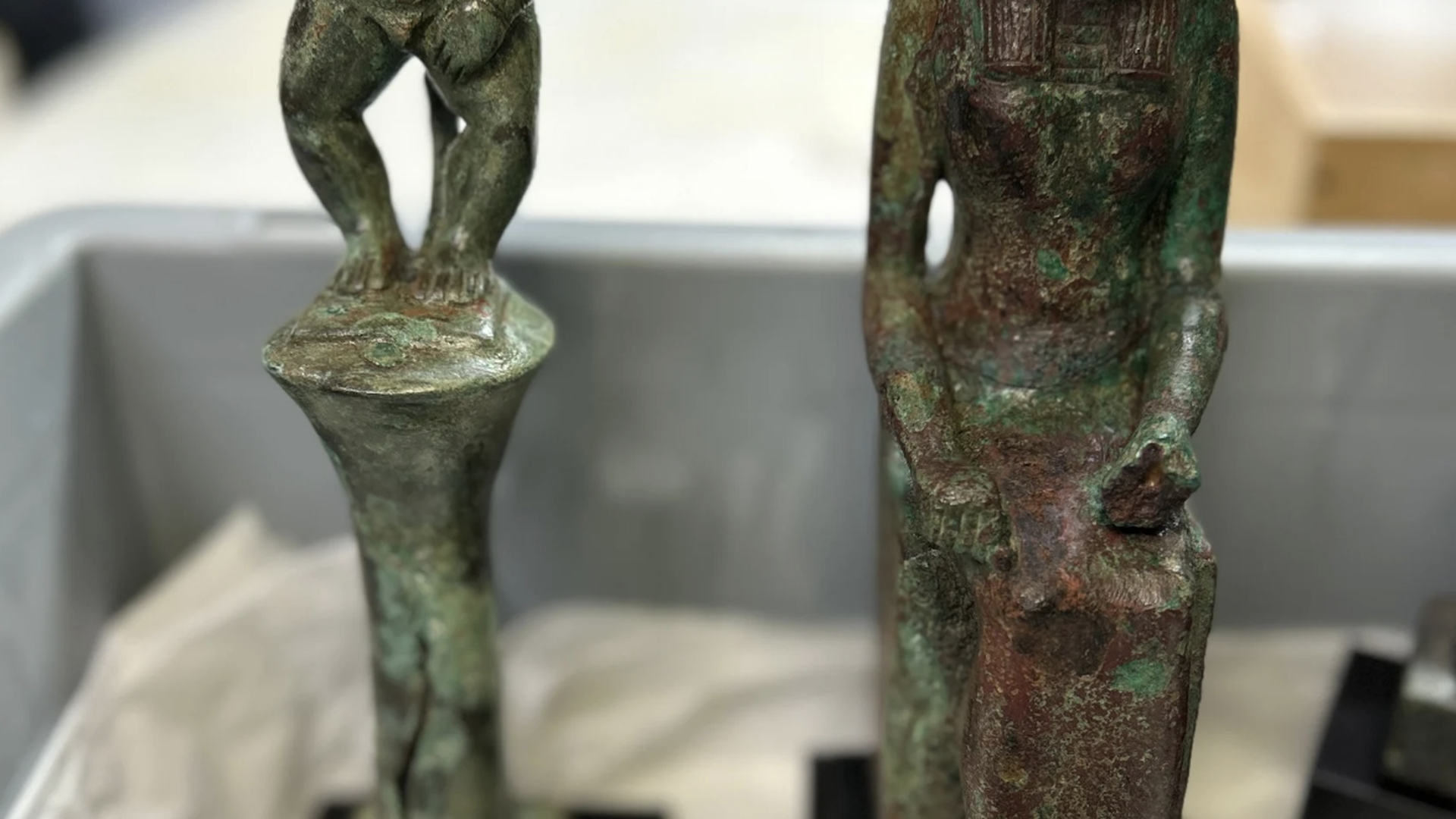
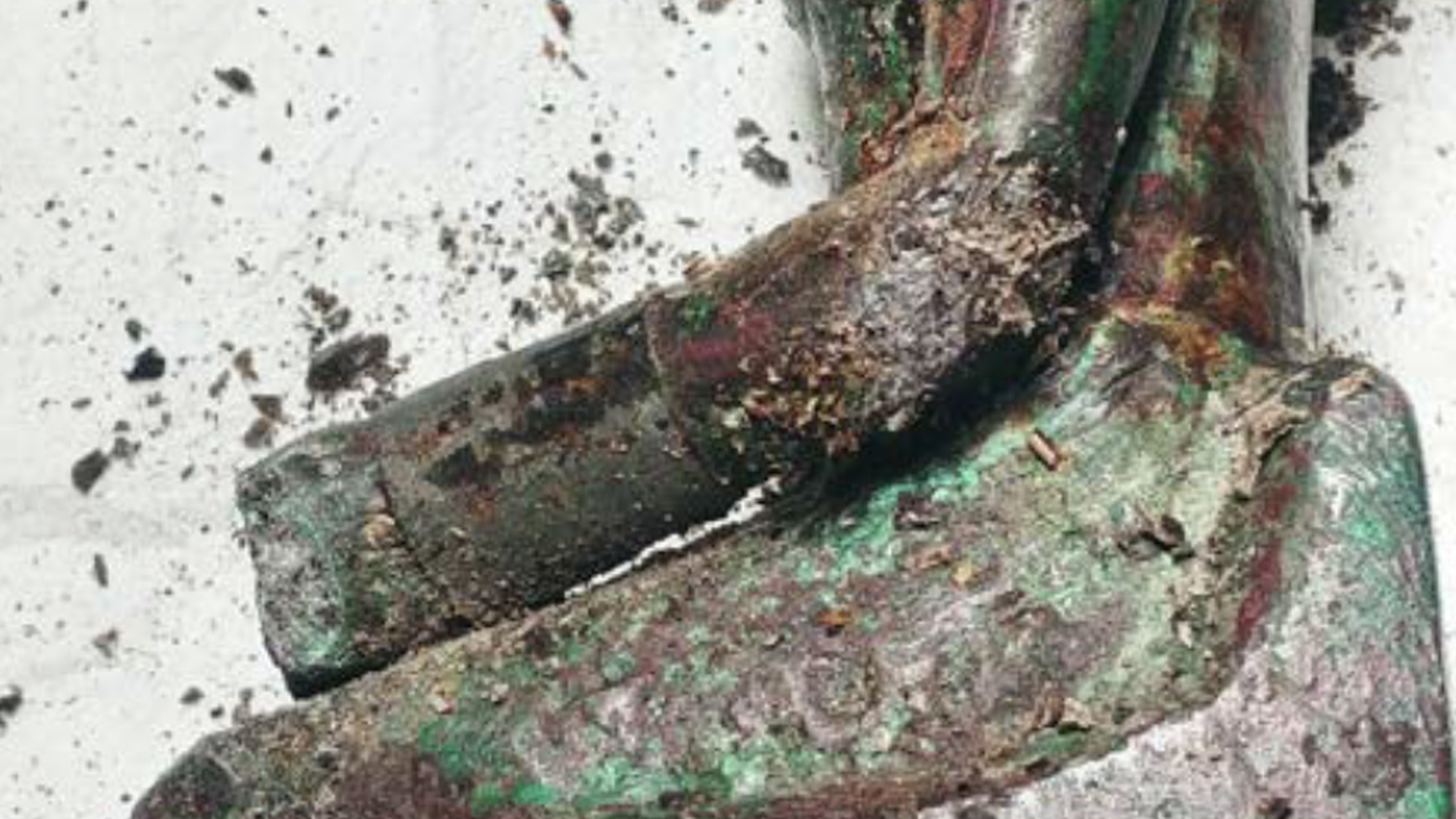
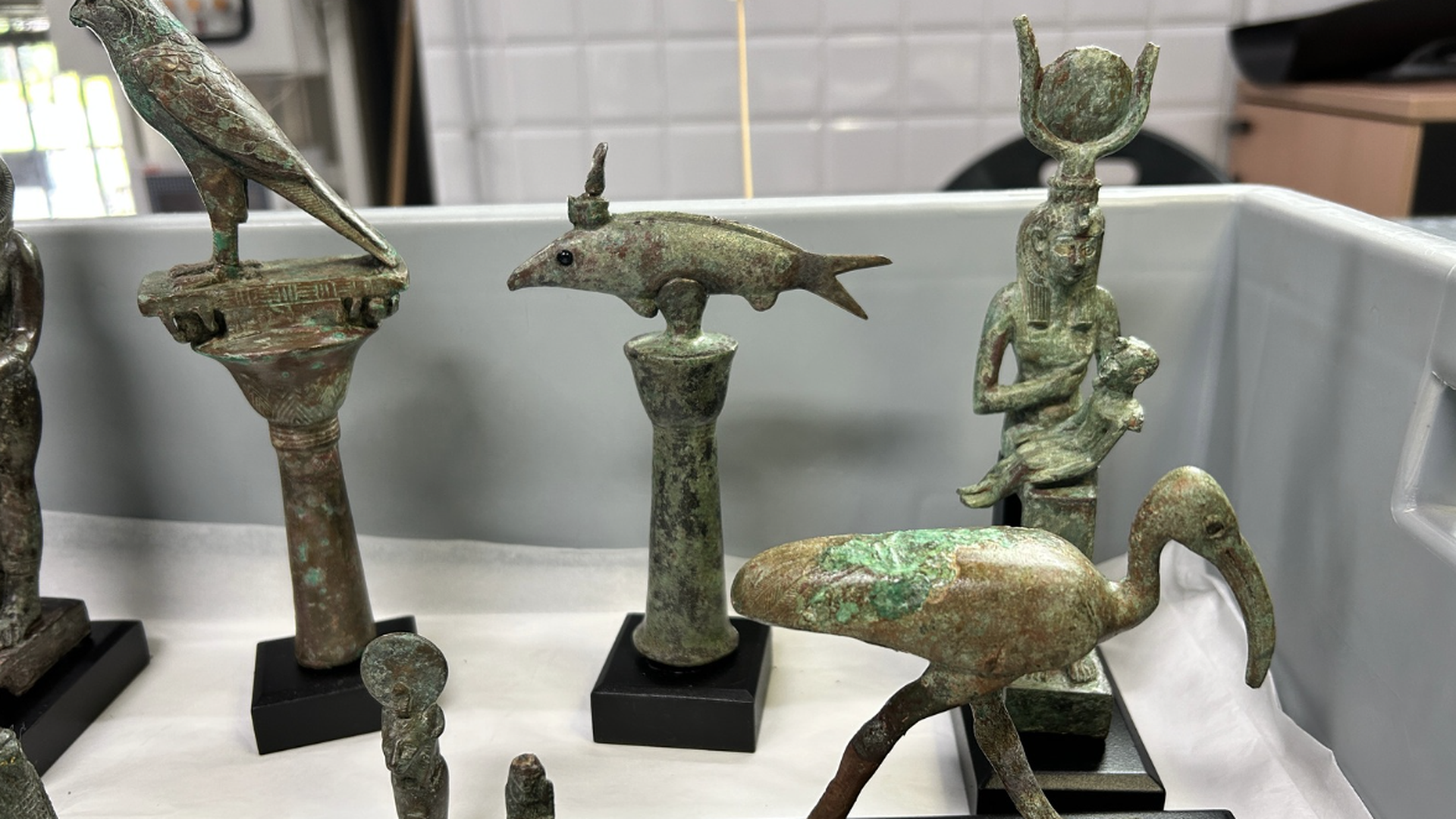
The twenty-five bronze statuettes were restored by recovering the surfaces and authentic patinas of the bronze in shades of green and cuprite brown. The colors of the bronze were altered by waxes and colored putty in reddish tones that camouflaged reconstruction work and the integration of missing parts, which had been carried out in recent times using tin foil, solder, and other metal elements.
The restoration began with removing the wax substances that caused a severe deterioration of the metal and the loss of parts of the surface with the formation of flaking and craters, finally revealing the original surfaces.
This restoration stabilized the corrosion forms and cleaned and protected the natural patinas of the bronze.
Twenty-Five Bronze Statuettes - Restoration update
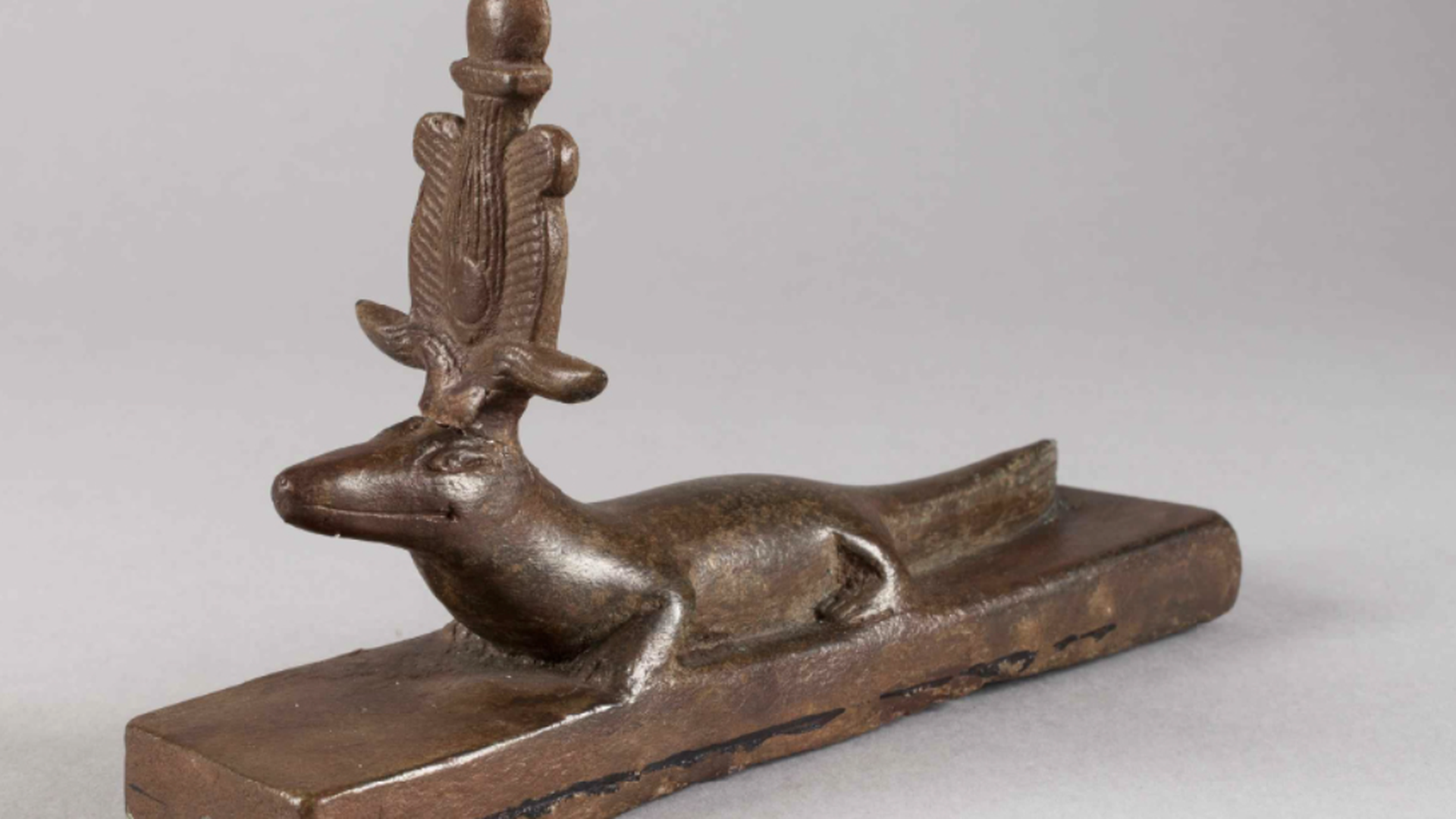
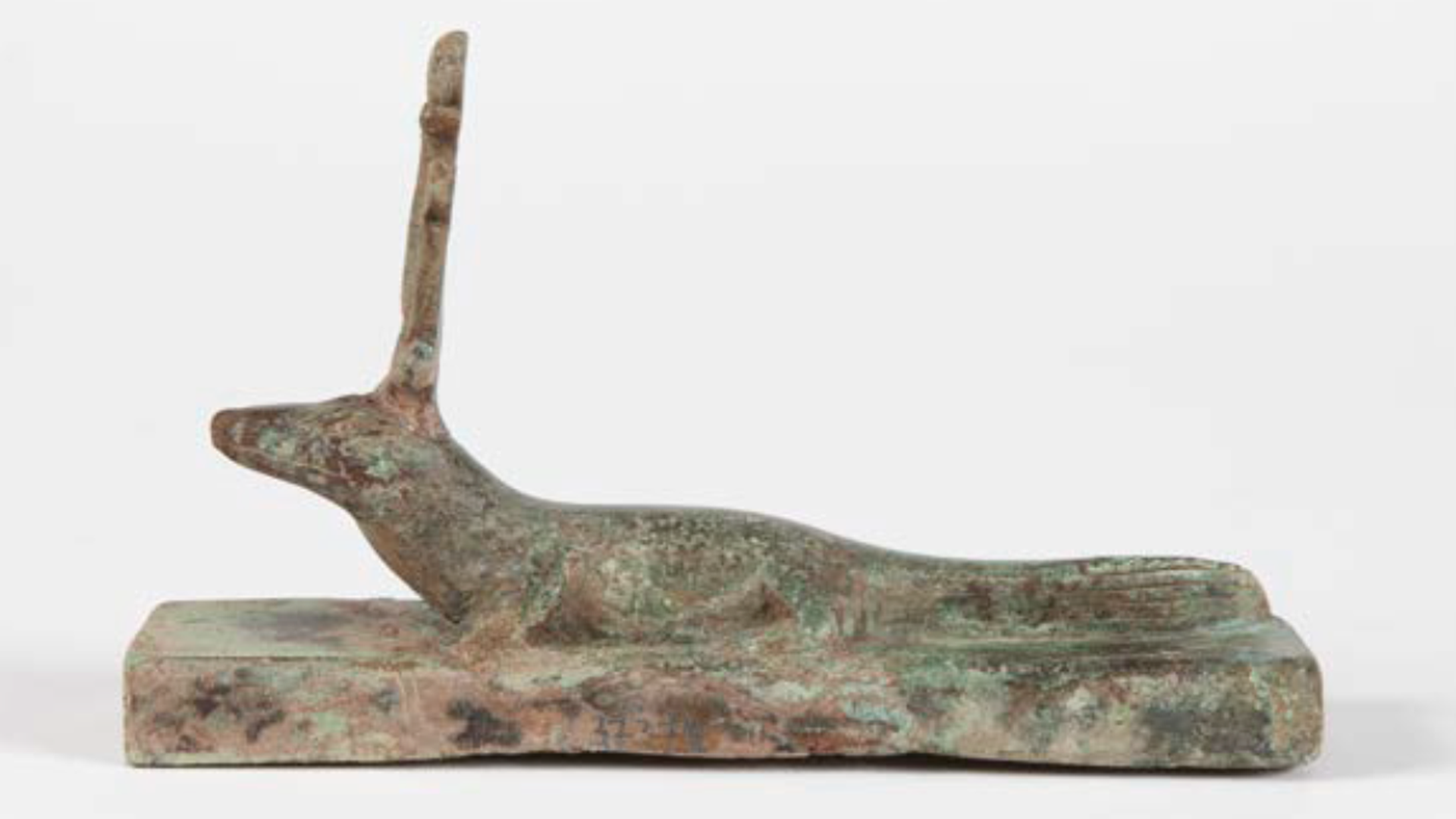
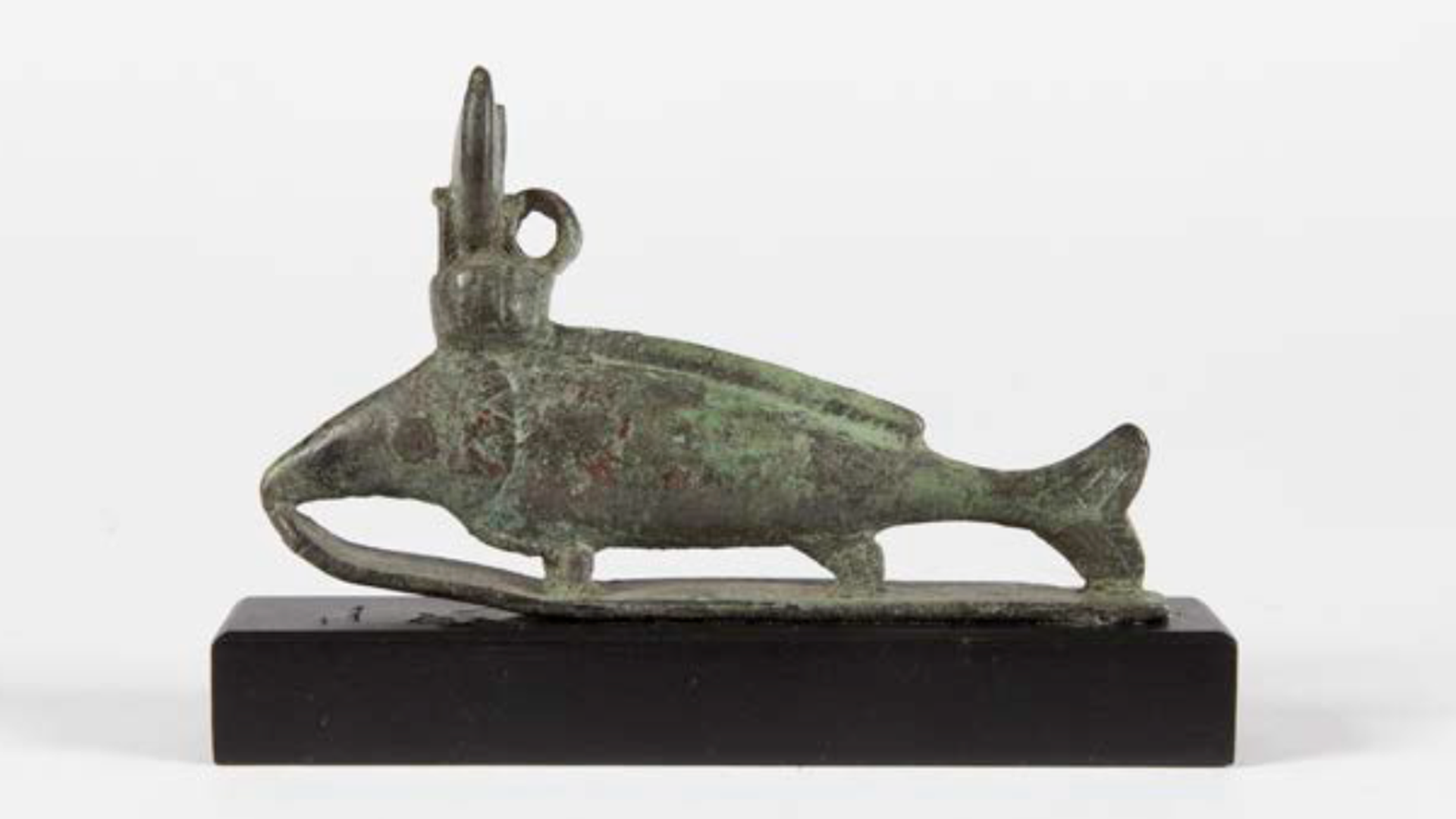
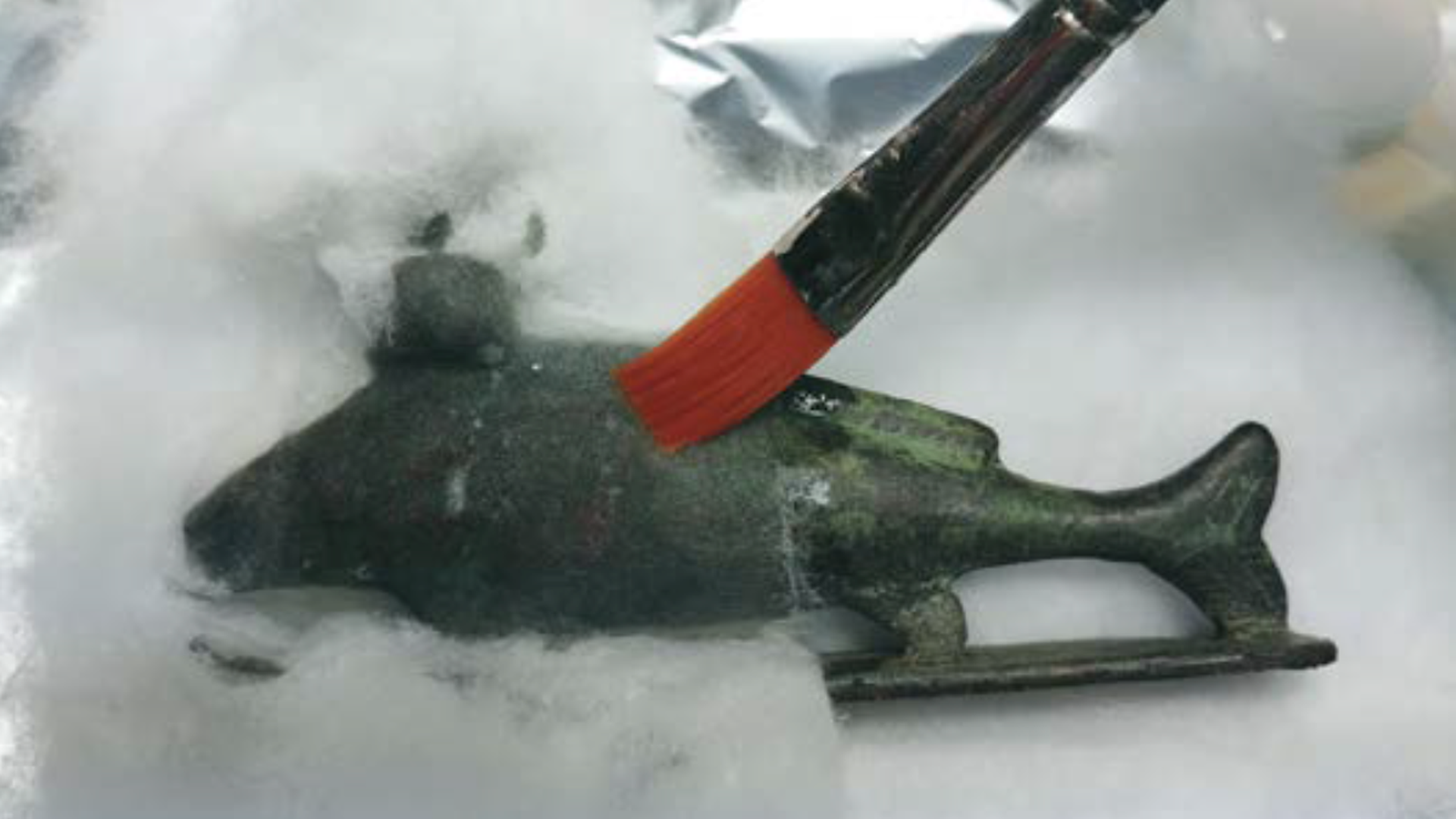
This restoration project concerns 25 bronze figurines of deities on display in Room VI of the Gregorian Egyptian Museum. Most of these bronze figurines manifest forms of deterioration produced by substances applied to the surfaces and by repairs and reconstructions carried out in the past.
The old interventions of the early 1900s were made with inadequate materials that, in this case of ancient bronzes, represent the cause of harmful forms of corrosion: in particular, the reconstructions performed by employing soldering alloys (such as tin) and the covering substances (waxes and dyes) spread to mask the uneven patinas of the bronze and the fragmentary nature of the objects are very damaging.
The restoration of the group of Egyptian figurines began with the removal of inappropriate substances and materials that not only altered the original appearance of the figurines and bronze patinas but also contributed to the degradation of the constituent material.
The restorers will treat the alterations to stabilize the metal alloy. Since these statuettes are on public display, restorers are paying attention to restoring the original appearance of the bronze patinas and figurative enhancement, with possible reconstruction of missing parts. If necessary, the curator will modify the current exhibited mounts.
In order not to empty the display cases in the Guglielmi room dedicated to Egyptian bronzes, the statuettes will be restored at different times. The restoration is still in progress and will be completed early next year.

Twenty-Five Bronze Statuettes

Details
Adopted by: The Florida Chapter
Patrons: Thomas Zoppo & Family
Inventory: 18637, 18707, 20622, 20629, 20631, 37212, 37217, 37231, 37236, 37239, 37247, 37283, 37301, 37370, 37374, 37378, 37388, 37389, 37394, 37401, 37407, 37414, 37419, 37424, 37598
Artist: Unknown
Date: Late Period (XXV-XXVI dynasties); Greco-Roman Period (3rd century B.C.-2nd century A.D.)
Classification: Statuette
Materials: Bronze
Dimensions: Various
Museum: Gregorian Egyptian Museum
Department: Egyptian and Near Eastern Antiquities
Laboratory: Metals & Ceramics
Wishbook year: 2023
Description
HIGH PRIORITY PROJECT
Bronze statuary constitutes one of the most characteristic artistic forms of Pharaoh dynastic Egypt. The statuettes belong to different categories. There are votive figurines (offerings presented to temple gods following a fulfilled request ex voto), decorative elements, parts of objects made of bronze and wood, and animal sarcophagi (containers for mummified animals). The dating is problematic because there is a lack of context for their discovery. They are generally dated between the Late Period (XXV-XXVI dynasties) and the Greco-Roman Period (3rd century B.C. - 2nd century A.D.).
TOTAL COST: € 25.354,04 ($ 24,781,03)
Restoration Procedures
-
Conservation assessment
-
Removal of old interventions (welds, resins, and waxes)
-
Mechanical and chemical cleaning
-
Treatment for metal stabilization
-
Design of new exhibition supports
Media
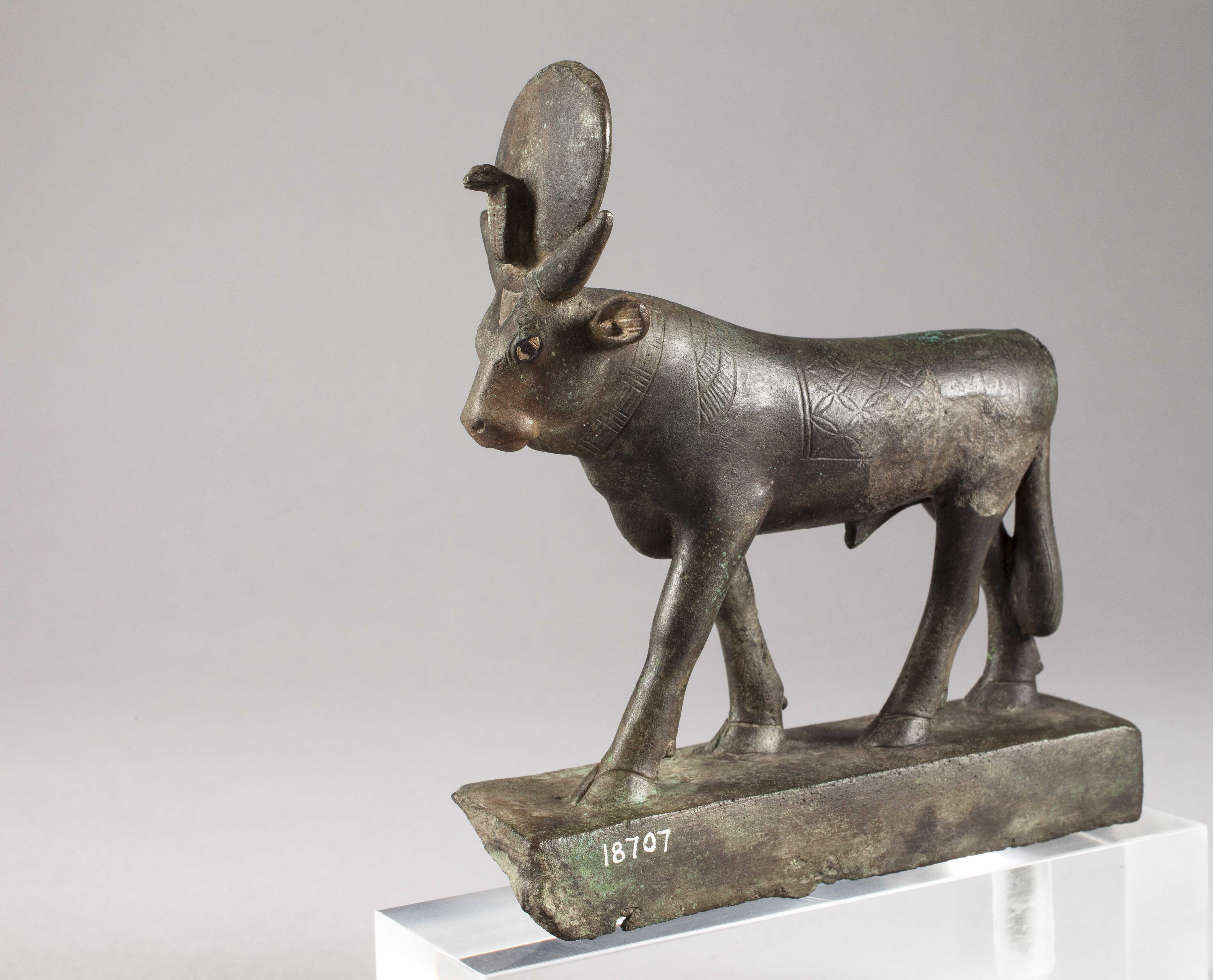
Egyptian Bronze Statuette - inv. 18707
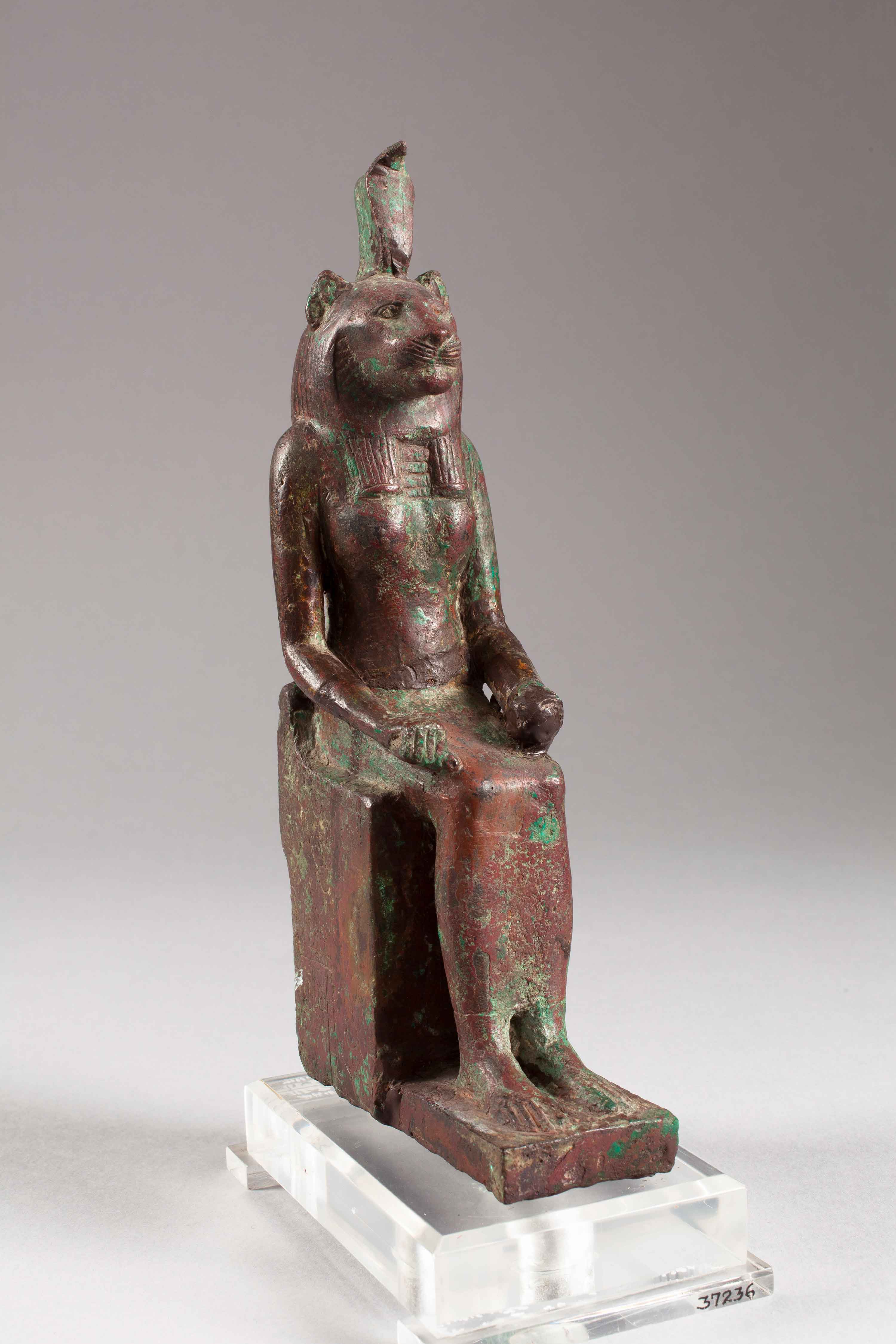
Bronze Statuette - inv. 37236
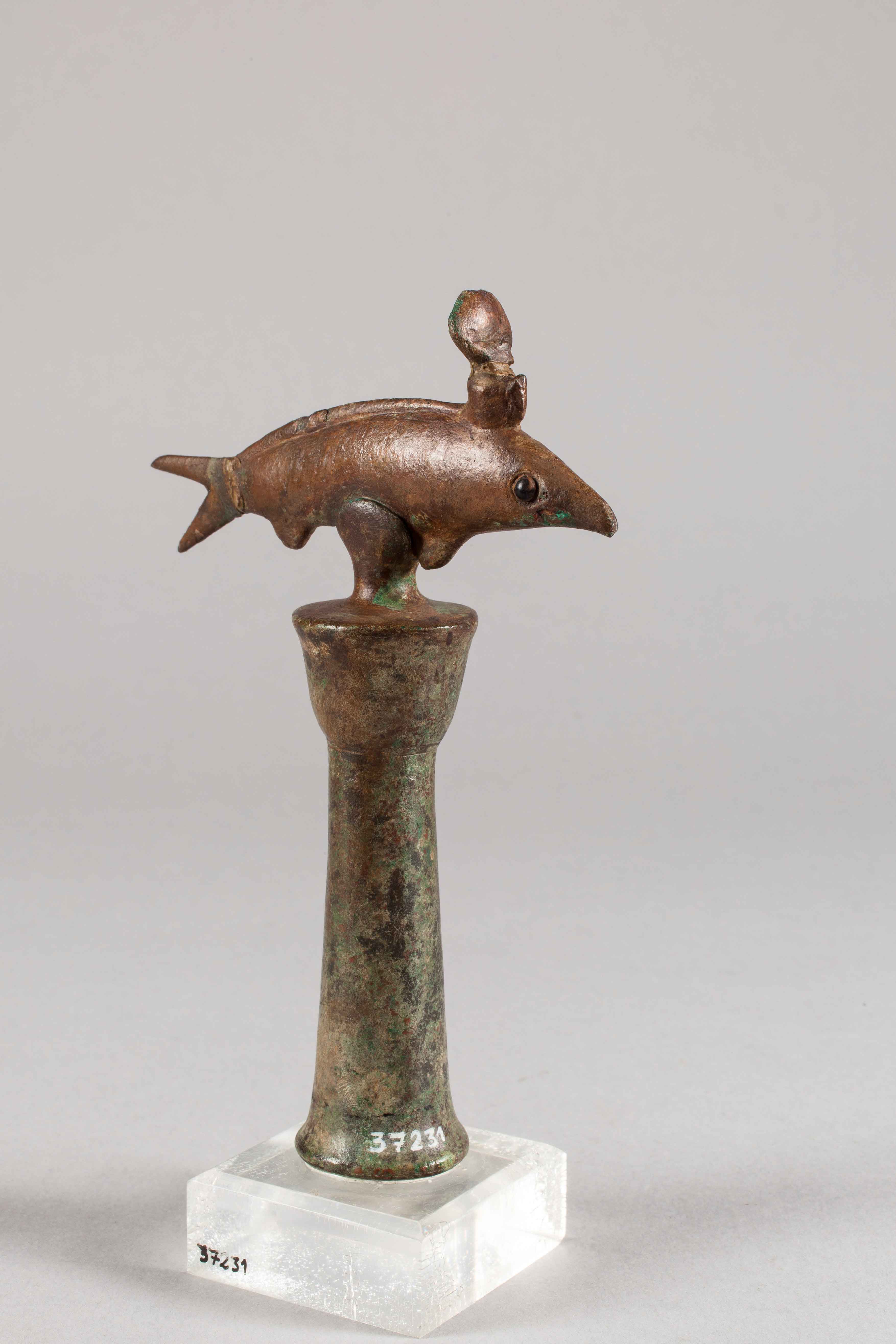
Bronze Statuette - inv. 37231
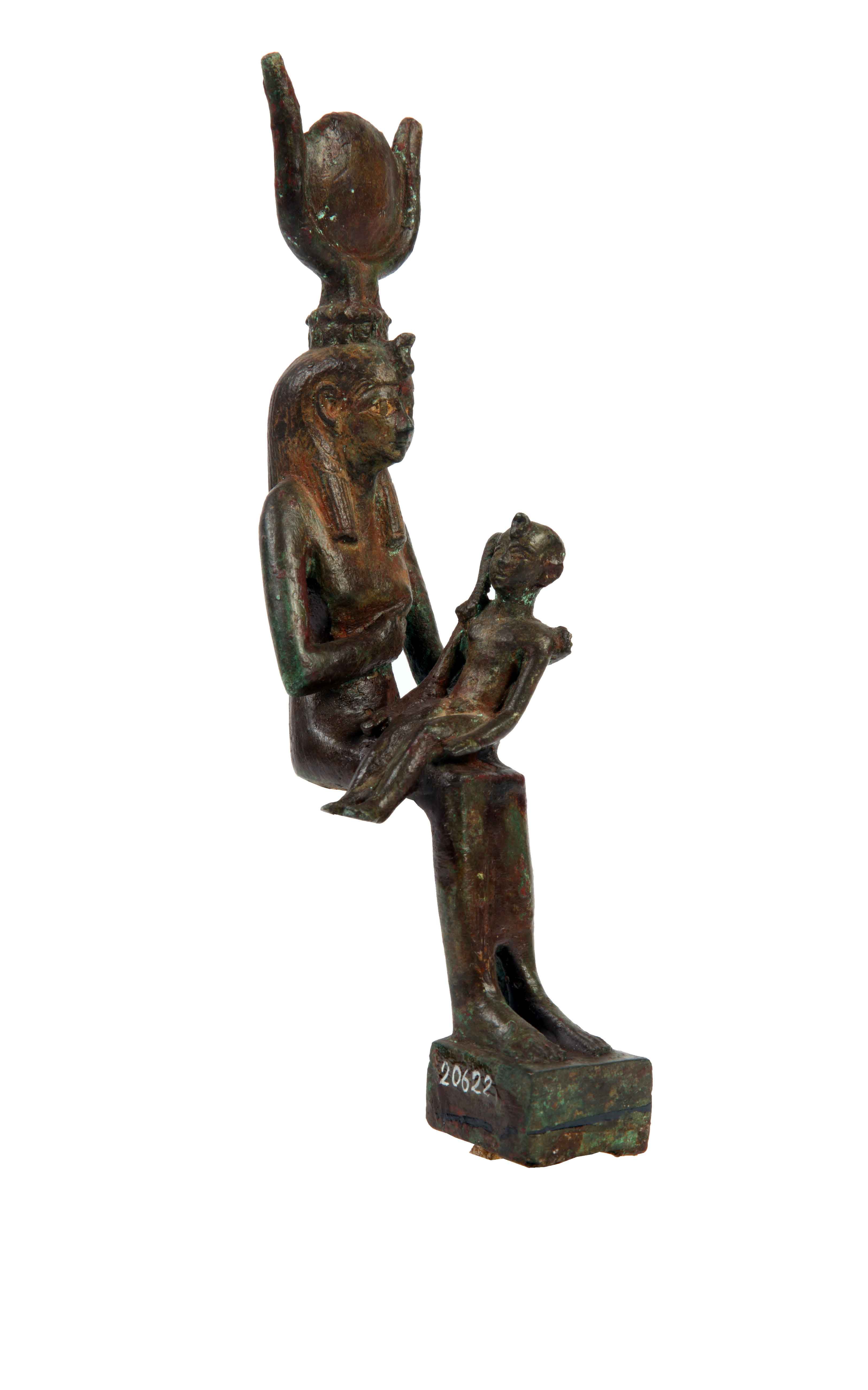
Bronze Statuette - inv. 20622
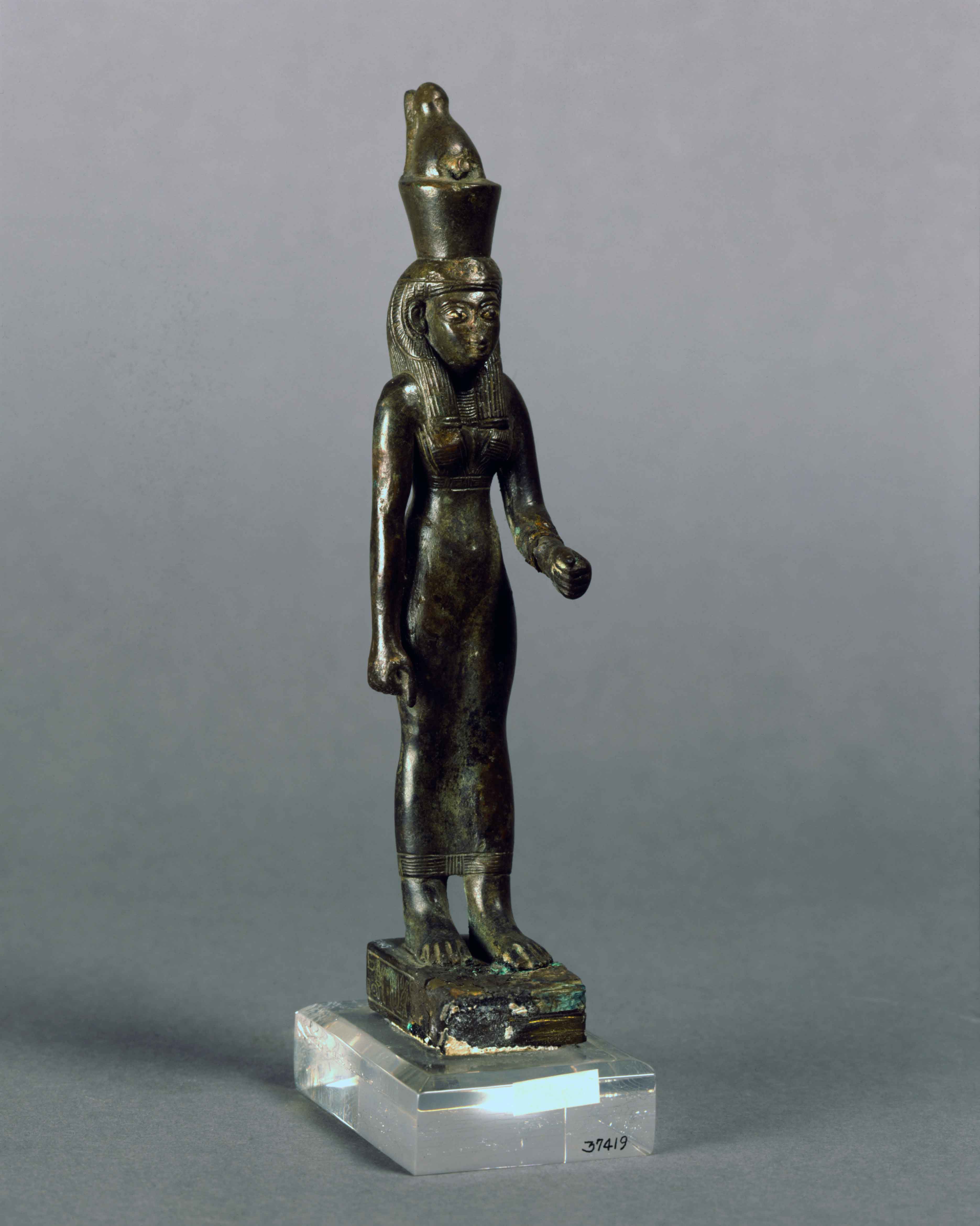
Bronze Statuette - inv. 37419
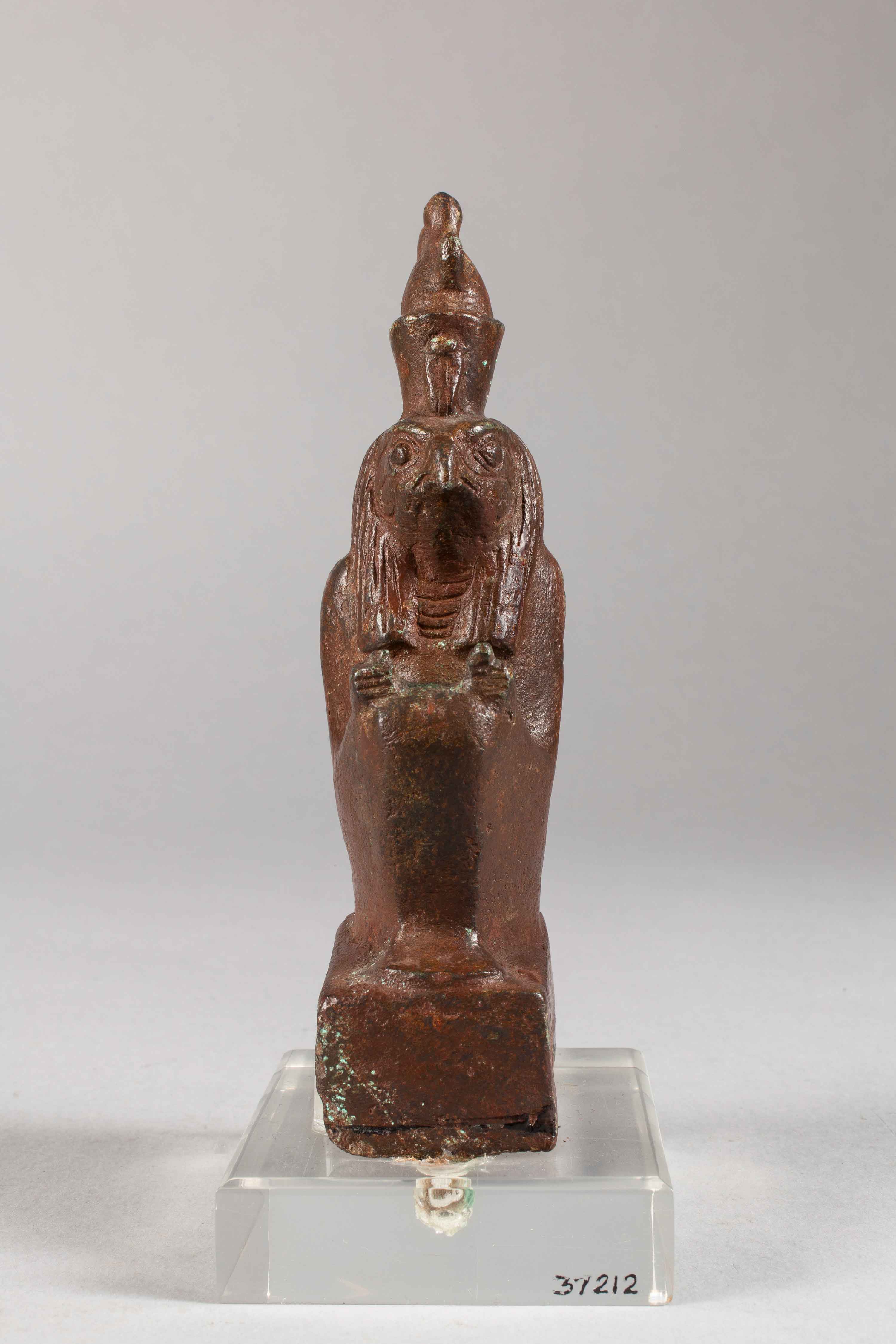
Bronze Statuette - inv. 37212
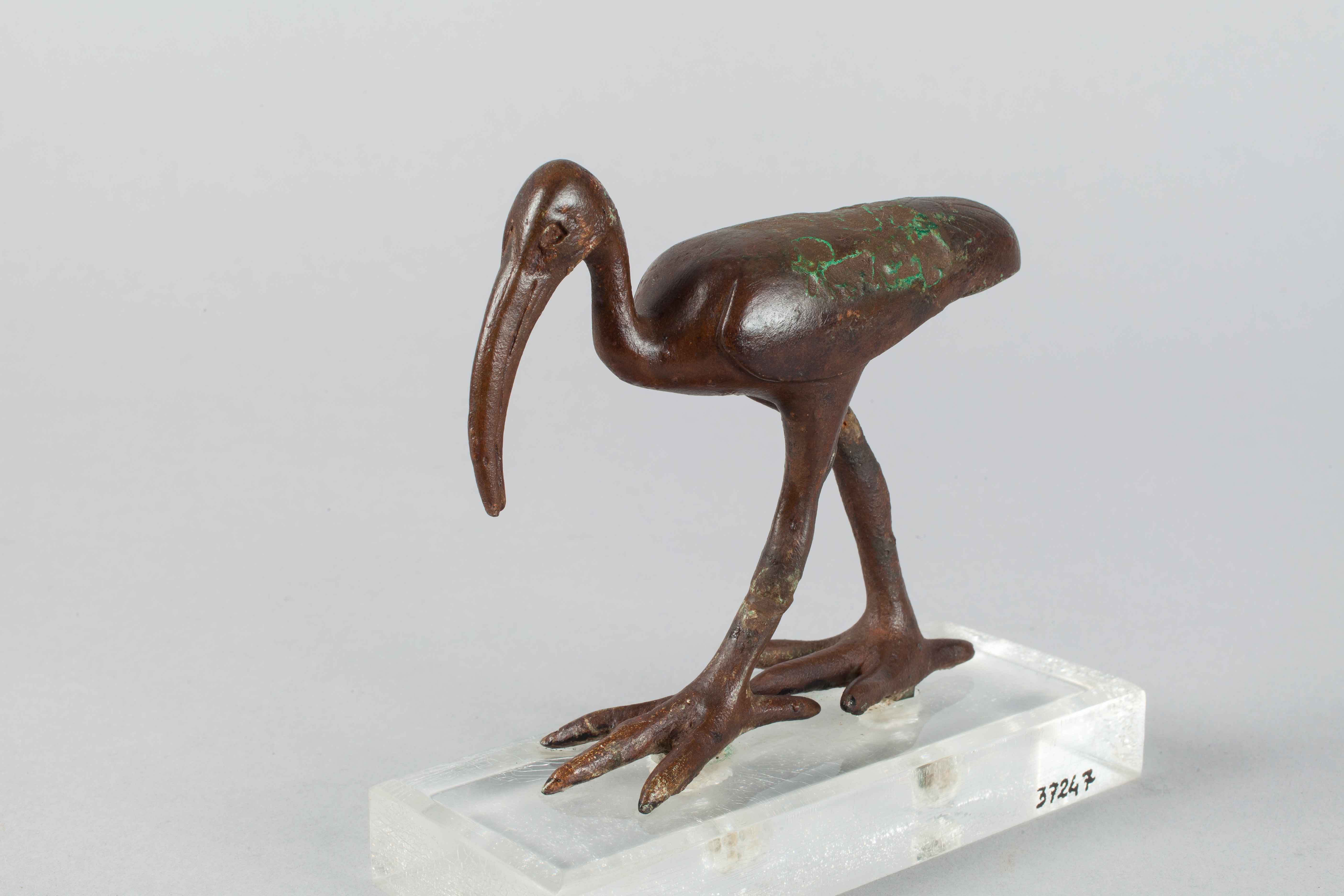
Bronze Statuette - inv. 37247
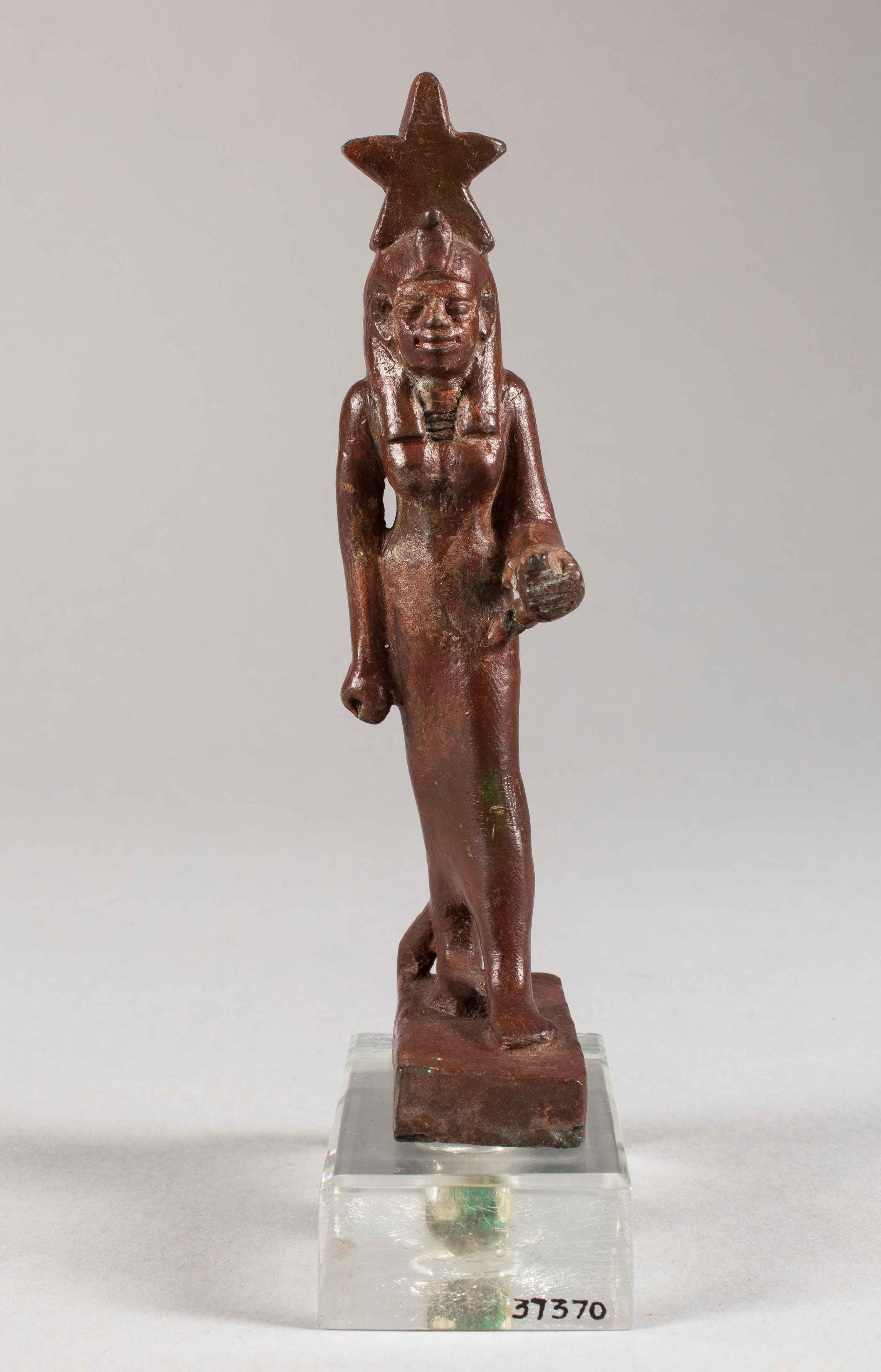
Bronze Statuette - inv. 37370
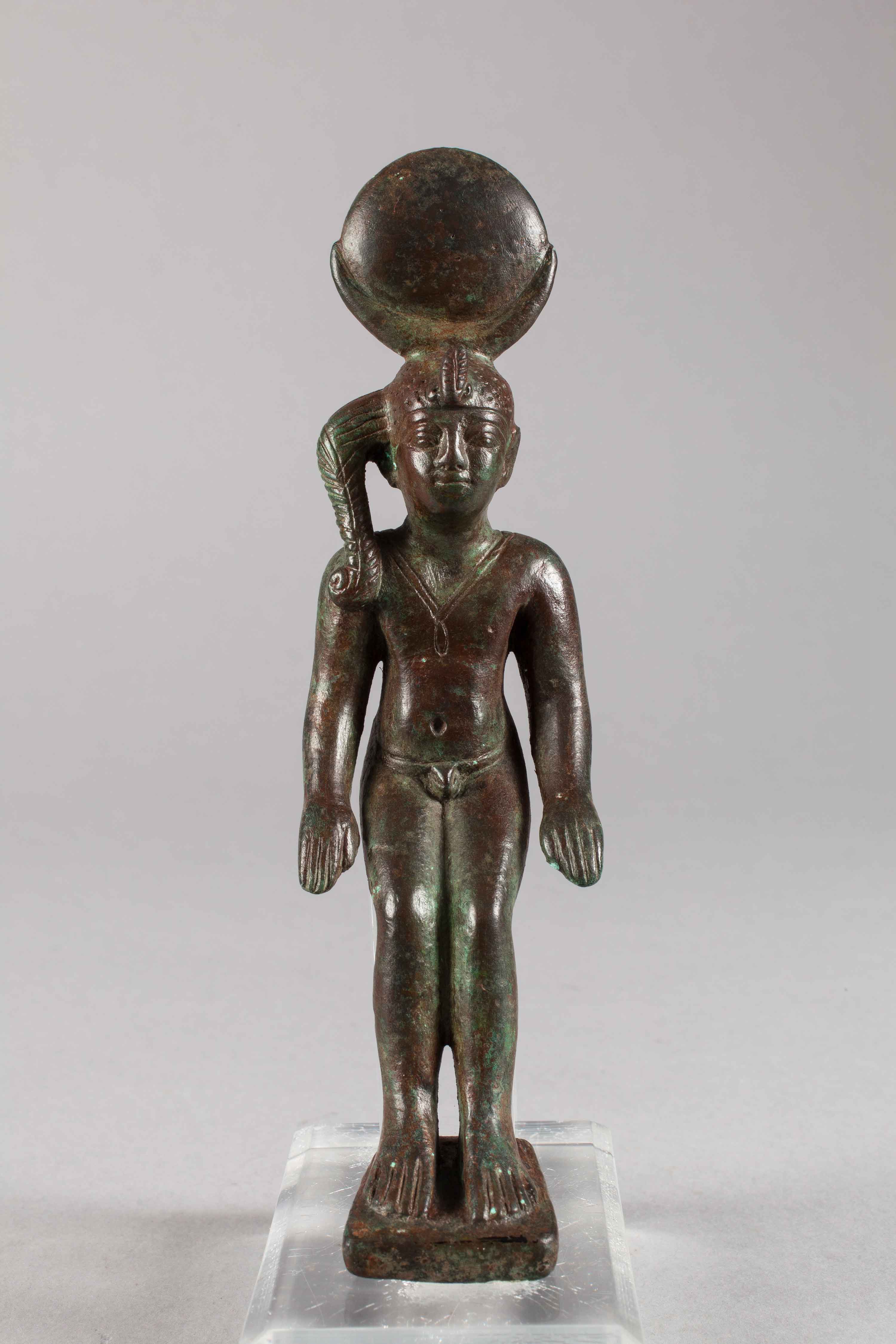
Bronze Statuette - inv. 37283
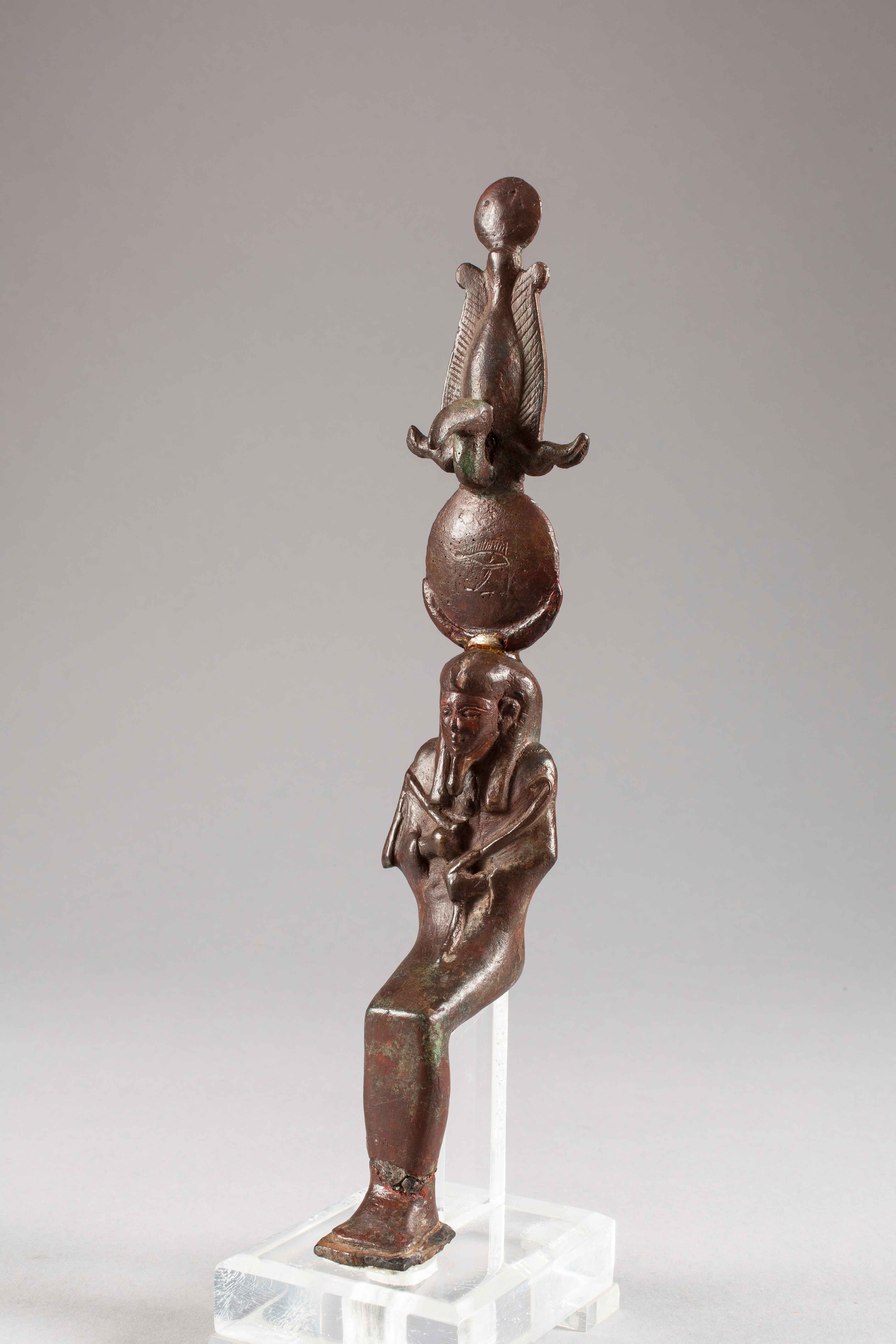
Bronze Statuette - inv. 37374
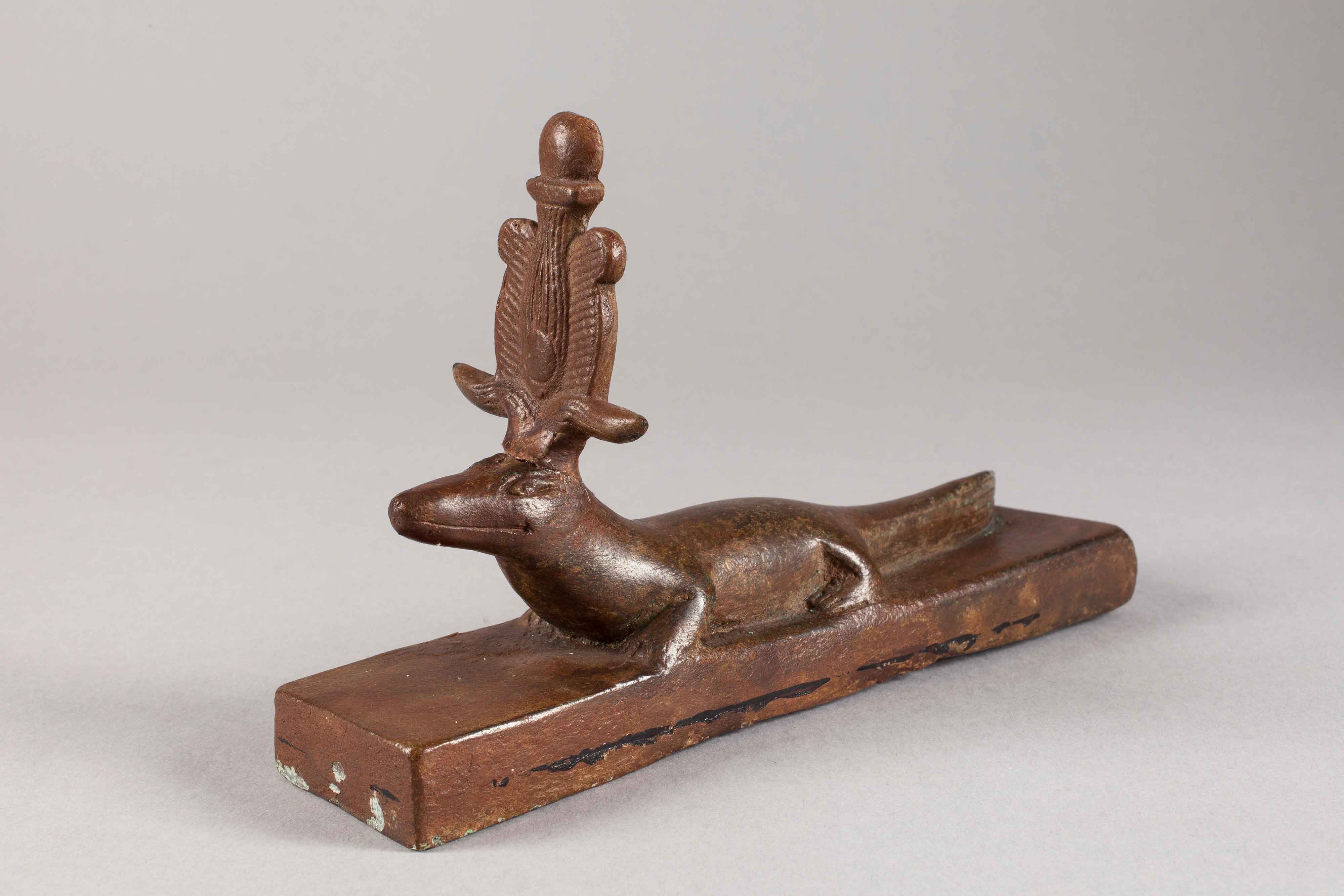
Bronze Statuette - inv. 37378
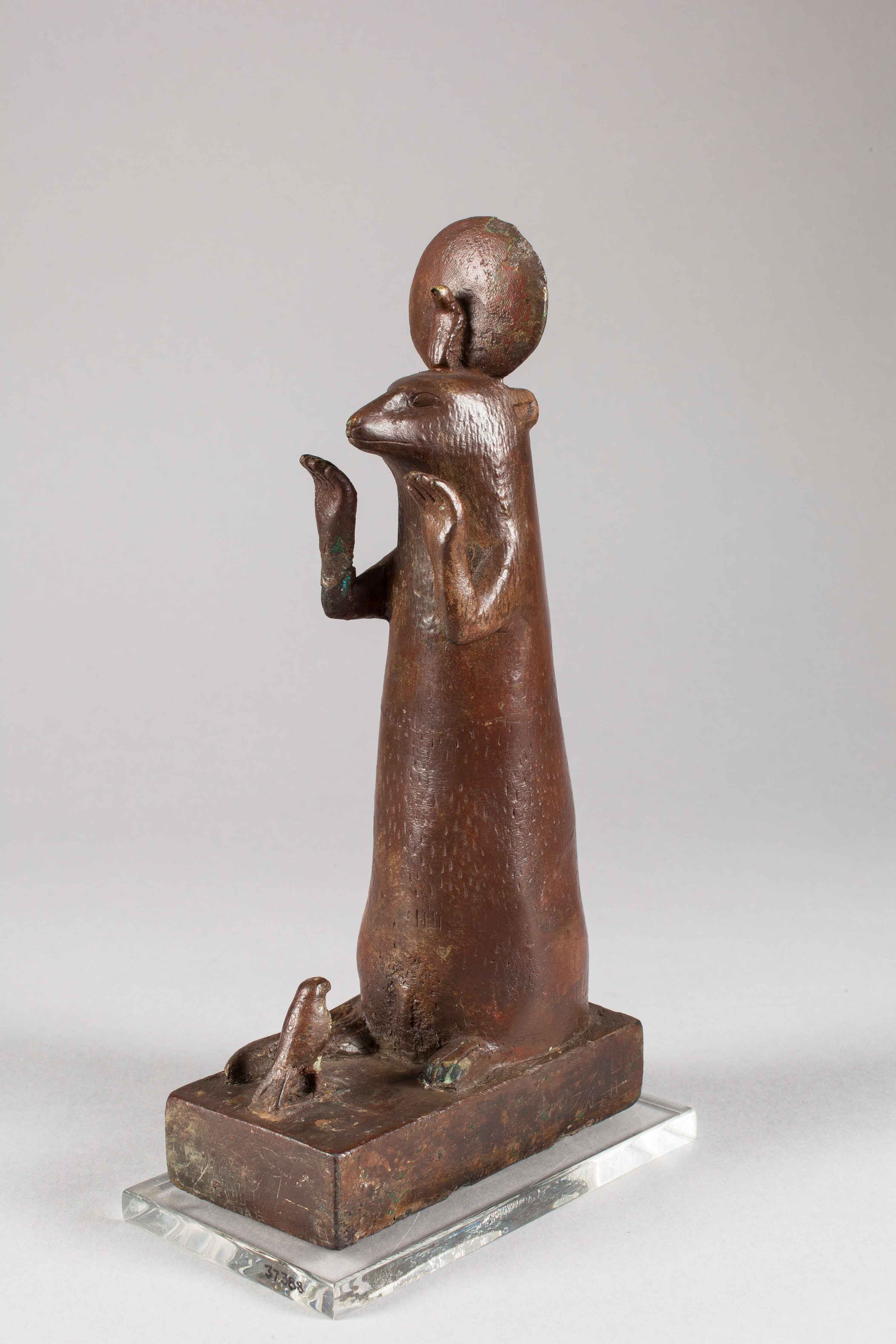
Bronze Statuette - inv. 37388
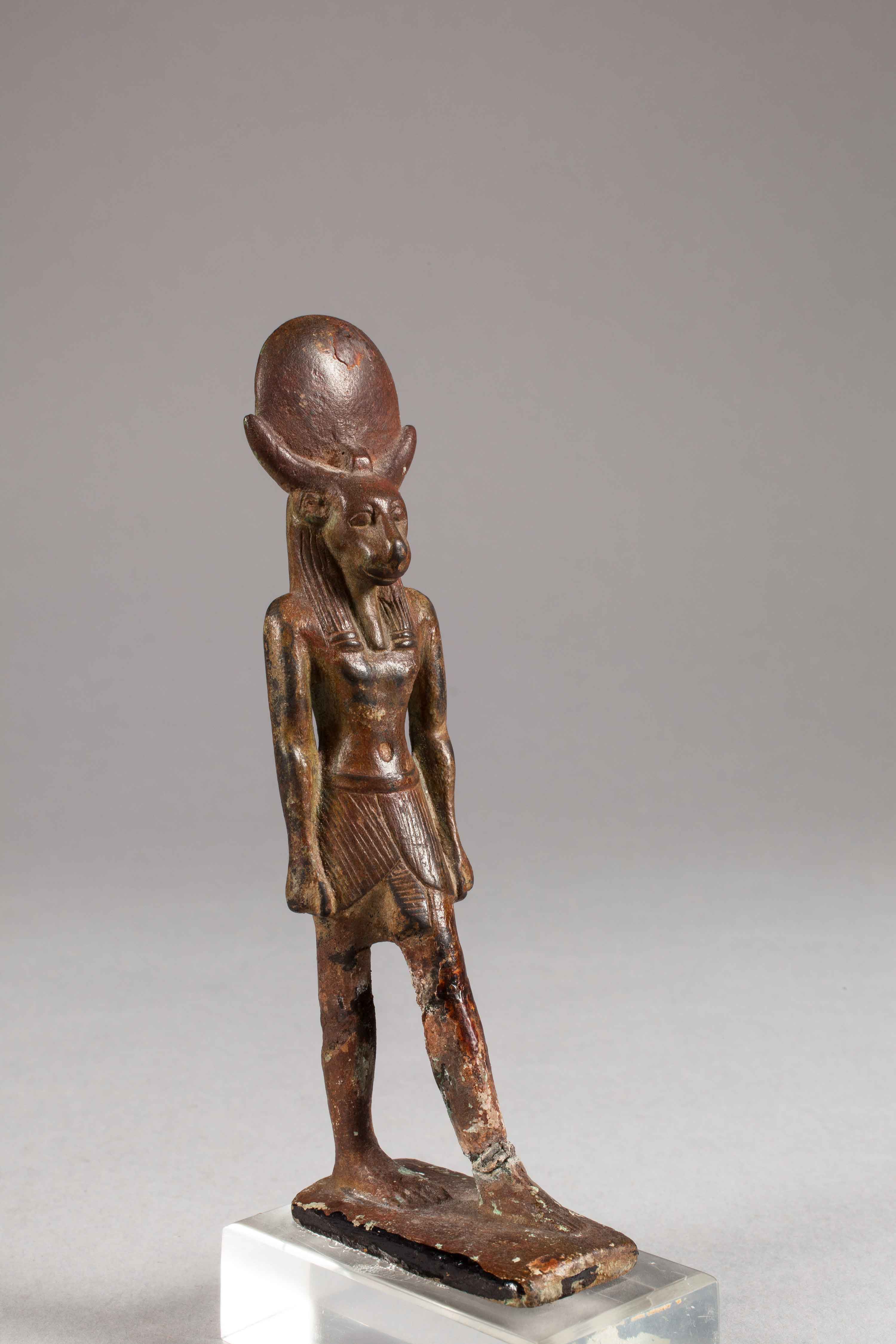
Bronze Statuette - inv. 37424
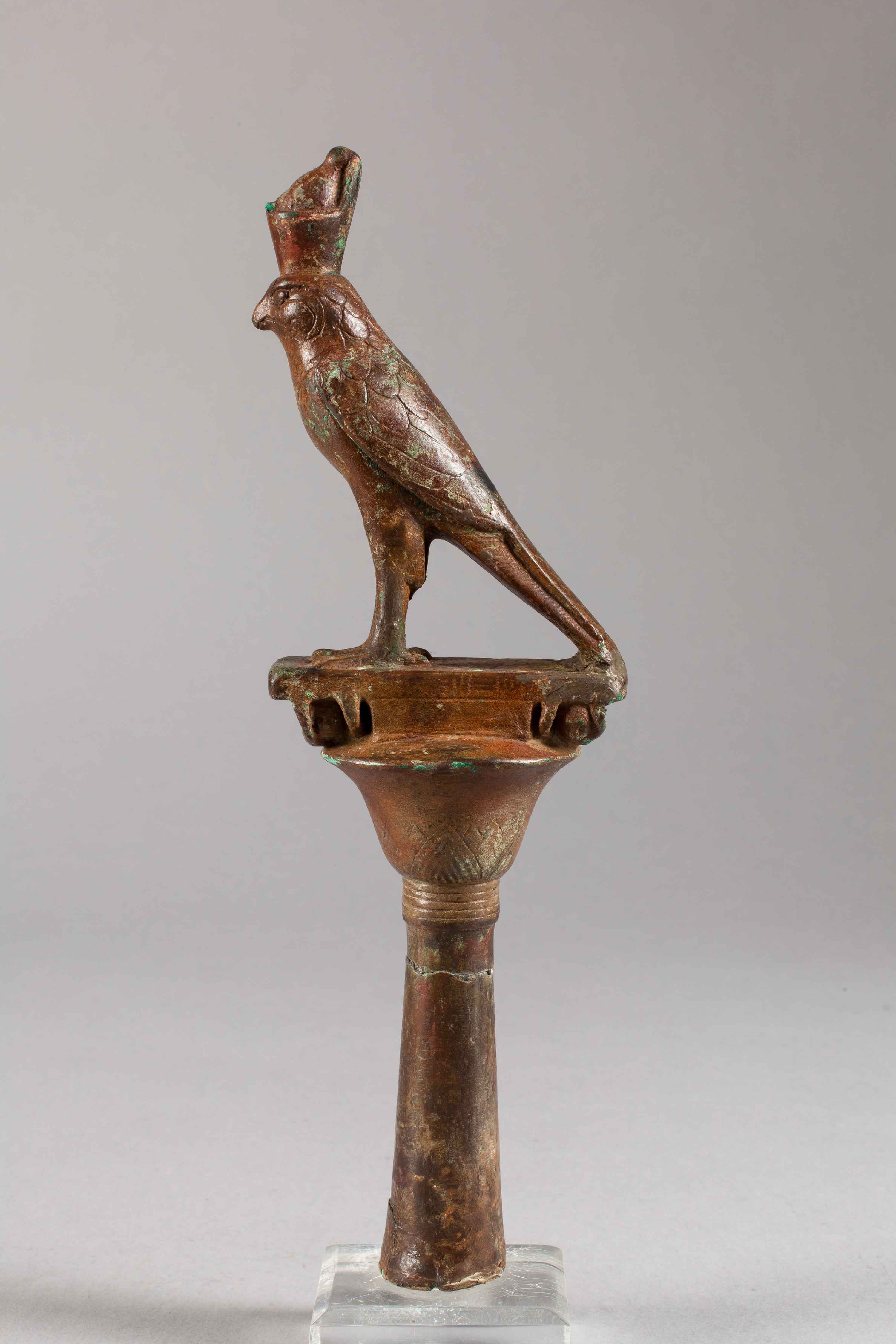
Bronze Statuette - inv. 37414
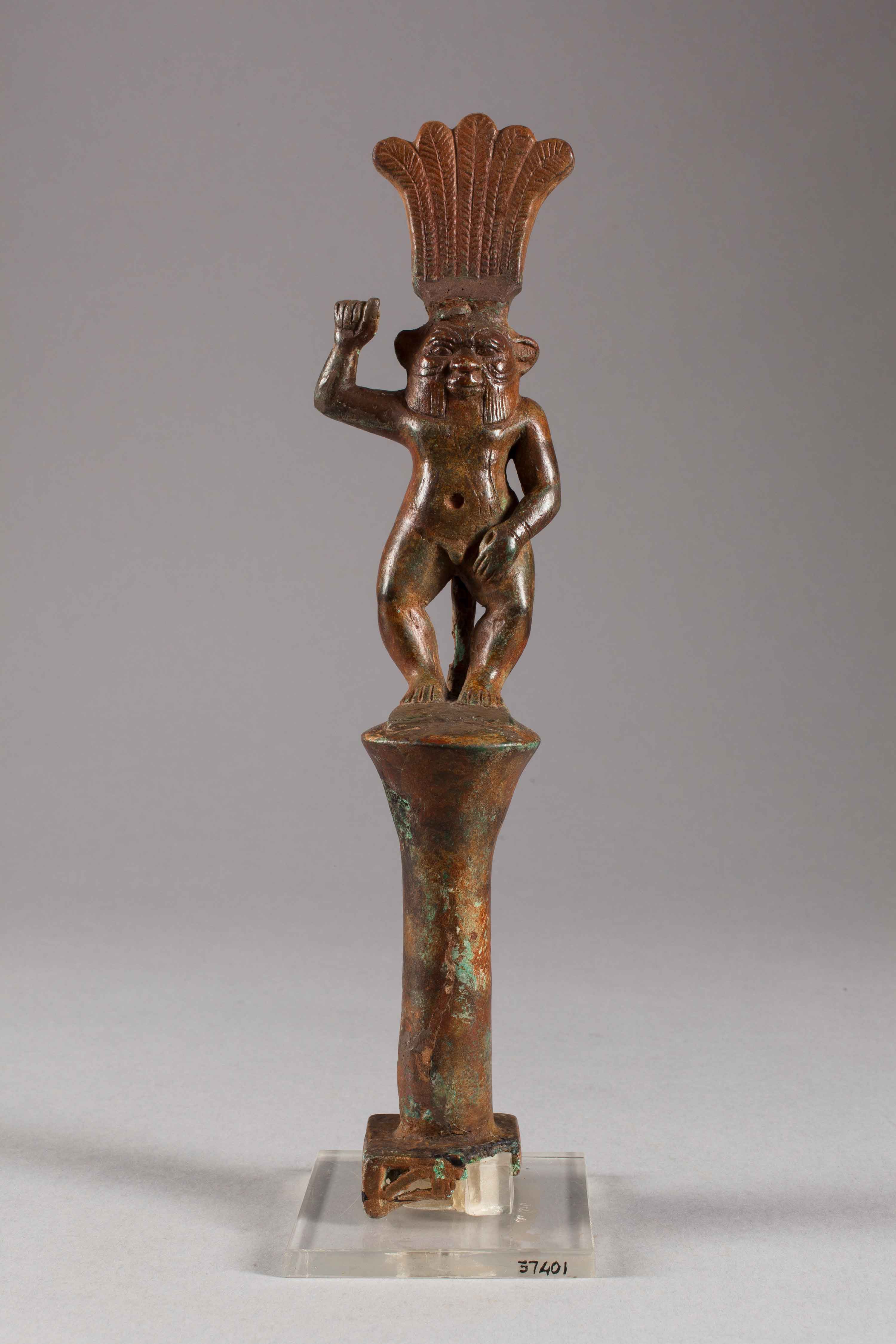
Bronze Statuette - inv. 37401
Restorations Update: Twenty-Five Bronze Statuettes - Final Restoration Report
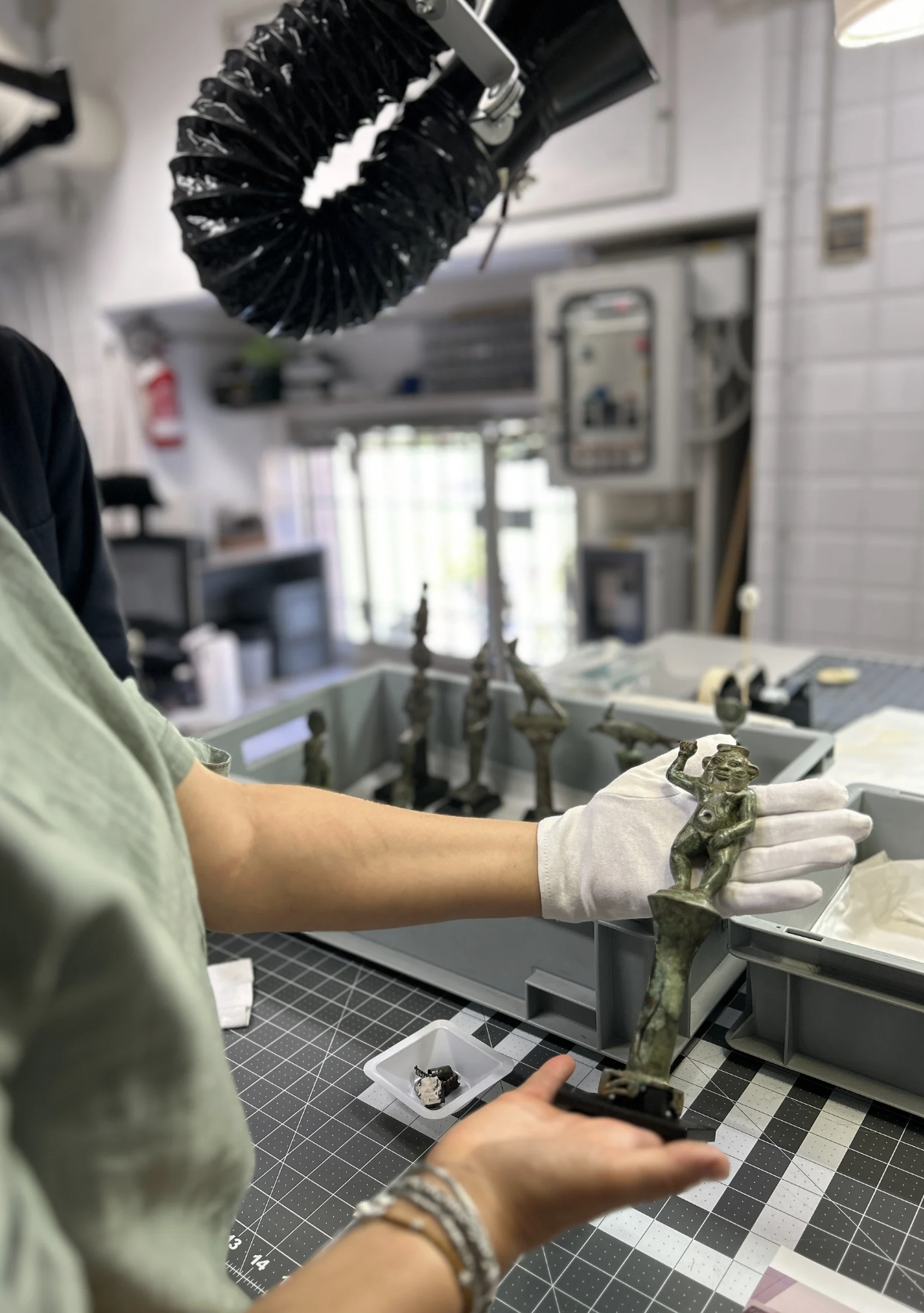
The twenty-five bronze statuettes were restored by recovering the surfaces and authentic patinas of the bronze in shades of green and cuprite brown. The colors of the bronze were altered by waxes and colored putty in reddish tones that camouflaged reconstruction work and the integration of missing parts, which had been carried out in recent times using tin foil, solder, and other metal elements.
The restoration began with removing the wax substances that caused a severe deterioration of the metal and the loss of parts of the surface with the formation of flaking and craters, finally revealing the original surfaces.
This restoration stabilized the corrosion forms and cleaned and protected the natural patinas of the bronze.
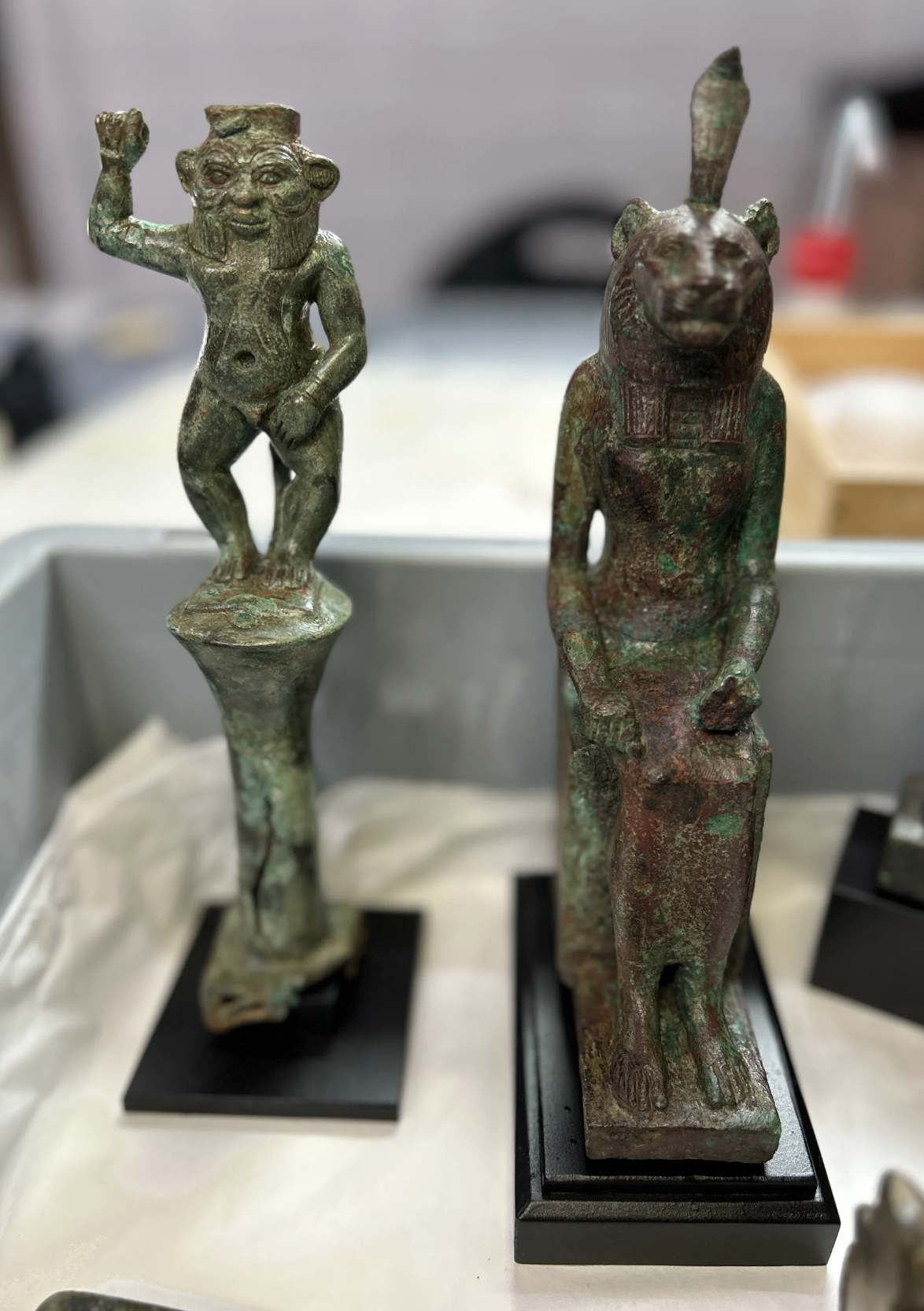
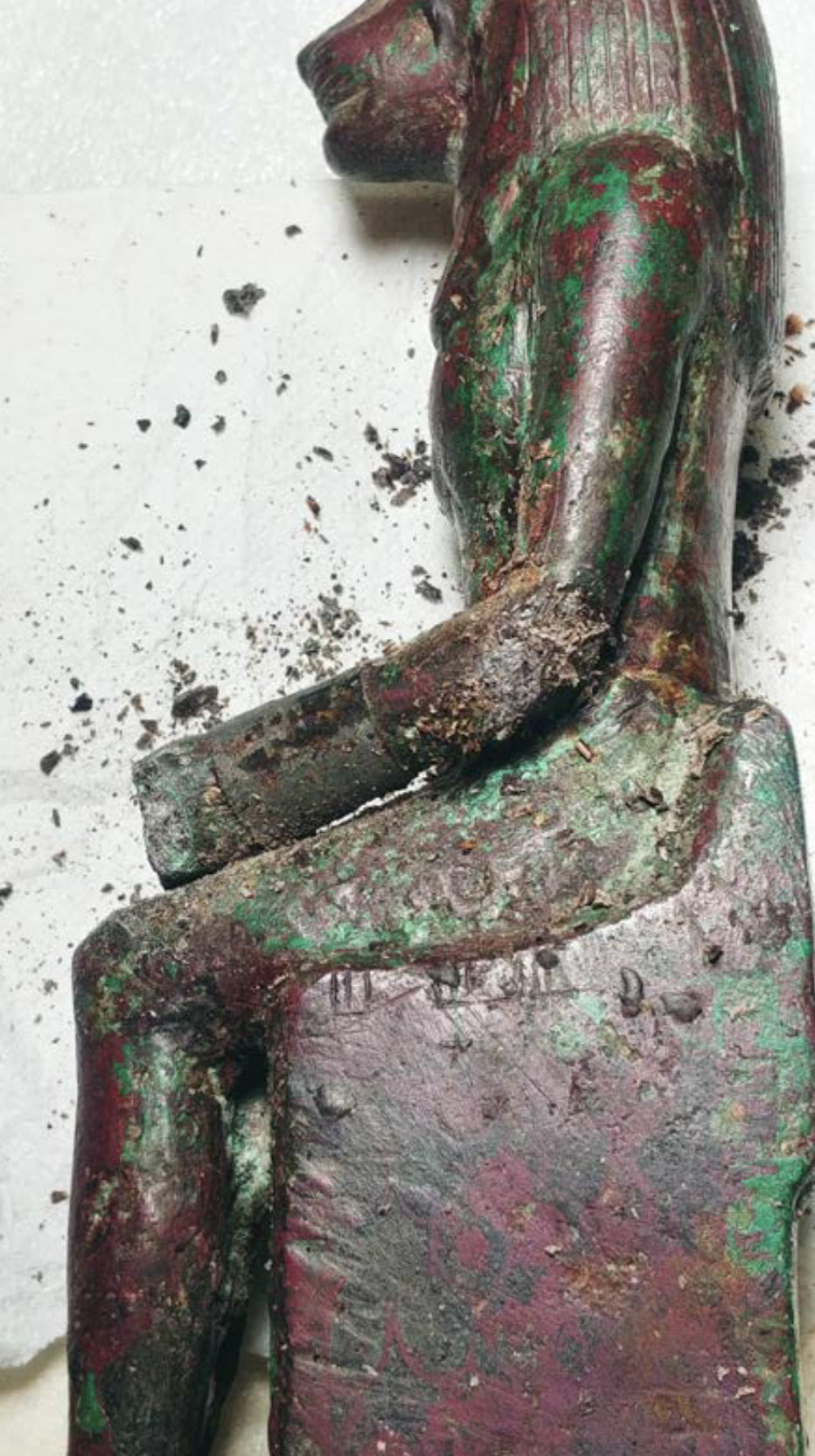
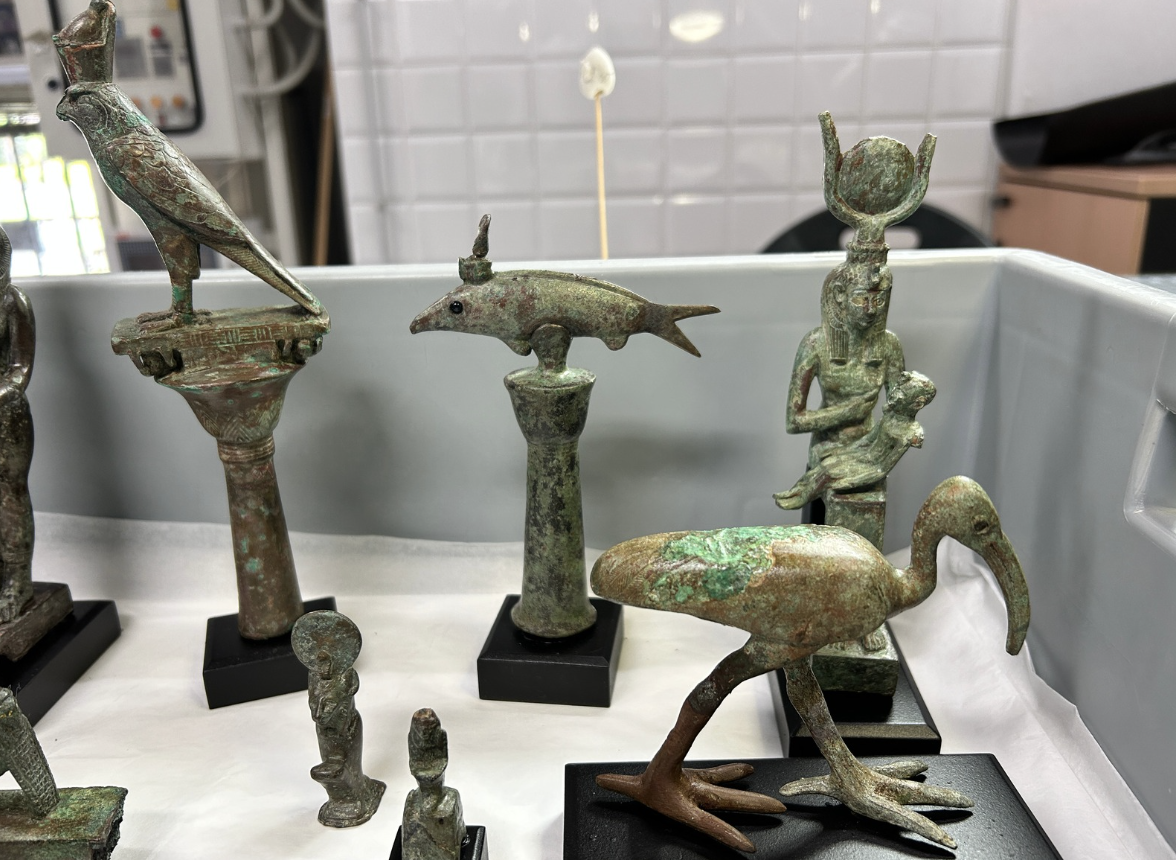
Restorations Update: Twenty-Five Bronze Statuettes - Restoration update
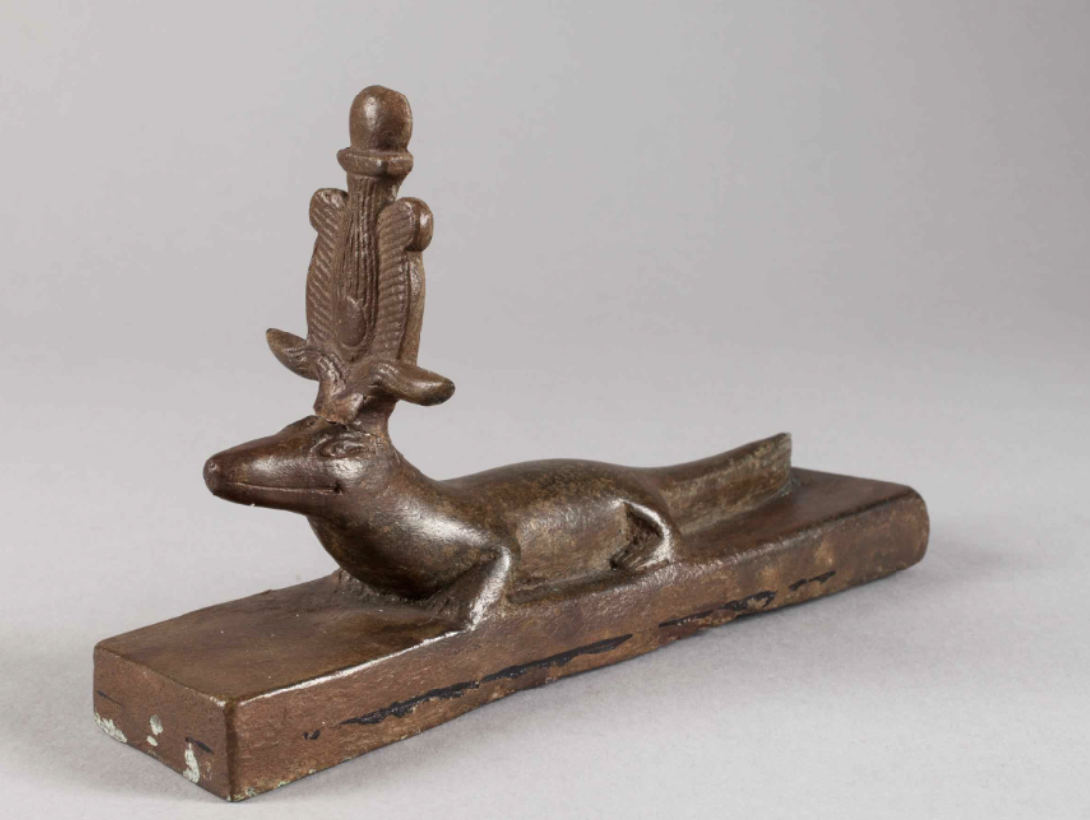
This restoration project concerns 25 bronze figurines of deities on display in Room VI of the Gregorian Egyptian Museum. Most of these bronze figurines manifest forms of deterioration produced by substances applied to the surfaces and by repairs and reconstructions carried out in the past.
The old interventions of the early 1900s were made with inadequate materials that, in this case of ancient bronzes, represent the cause of harmful forms of corrosion: in particular, the reconstructions performed by employing soldering alloys (such as tin) and the covering substances (waxes and dyes) spread to mask the uneven patinas of the bronze and the fragmentary nature of the objects are very damaging.
The restoration of the group of Egyptian figurines began with the removal of inappropriate substances and materials that not only altered the original appearance of the figurines and bronze patinas but also contributed to the degradation of the constituent material.
The restorers will treat the alterations to stabilize the metal alloy. Since these statuettes are on public display, restorers are paying attention to restoring the original appearance of the bronze patinas and figurative enhancement, with possible reconstruction of missing parts. If necessary, the curator will modify the current exhibited mounts.
In order not to empty the display cases in the Guglielmi room dedicated to Egyptian bronzes, the statuettes will be restored at different times. The restoration is still in progress and will be completed early next year.
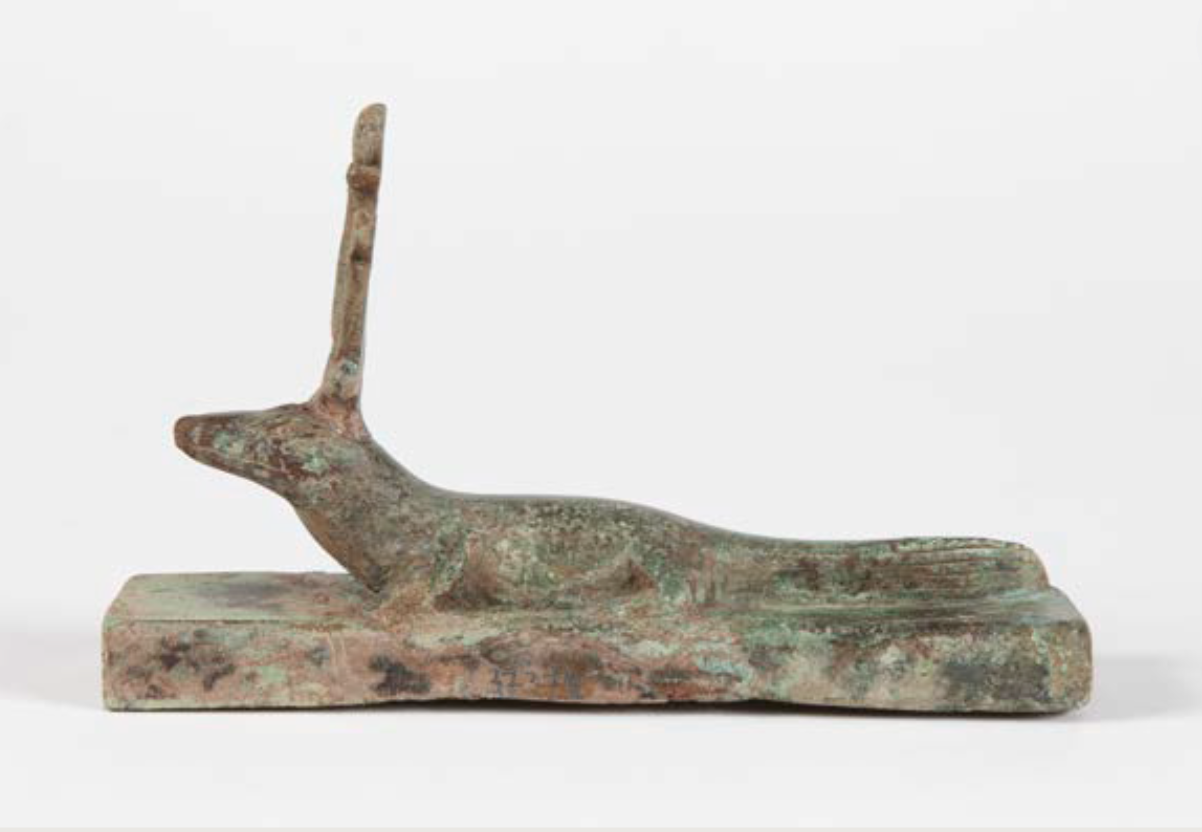
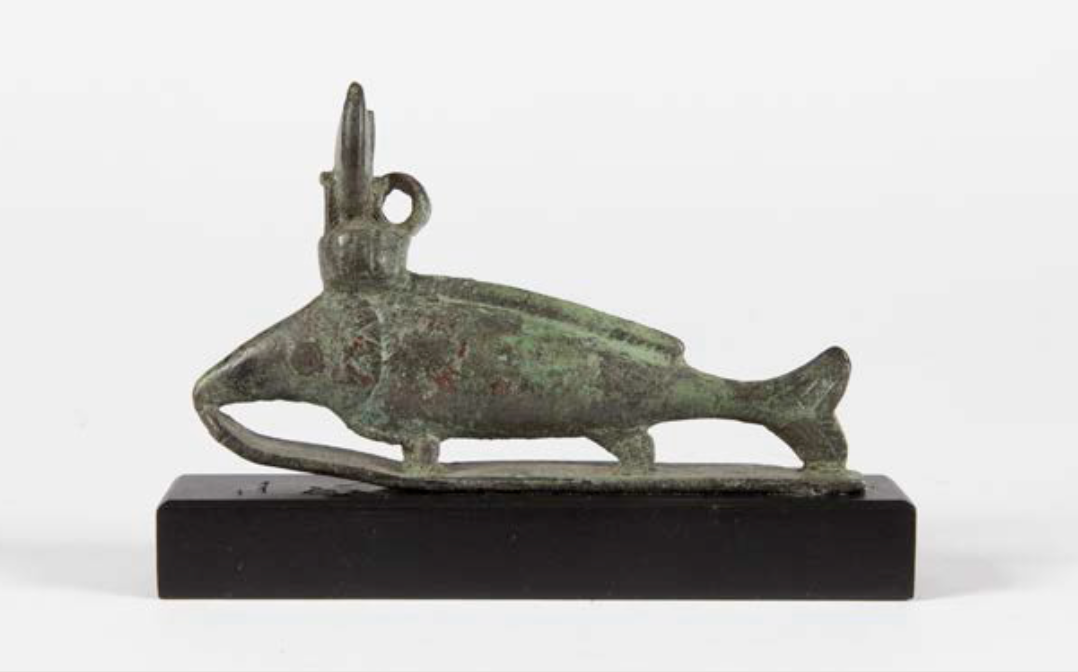
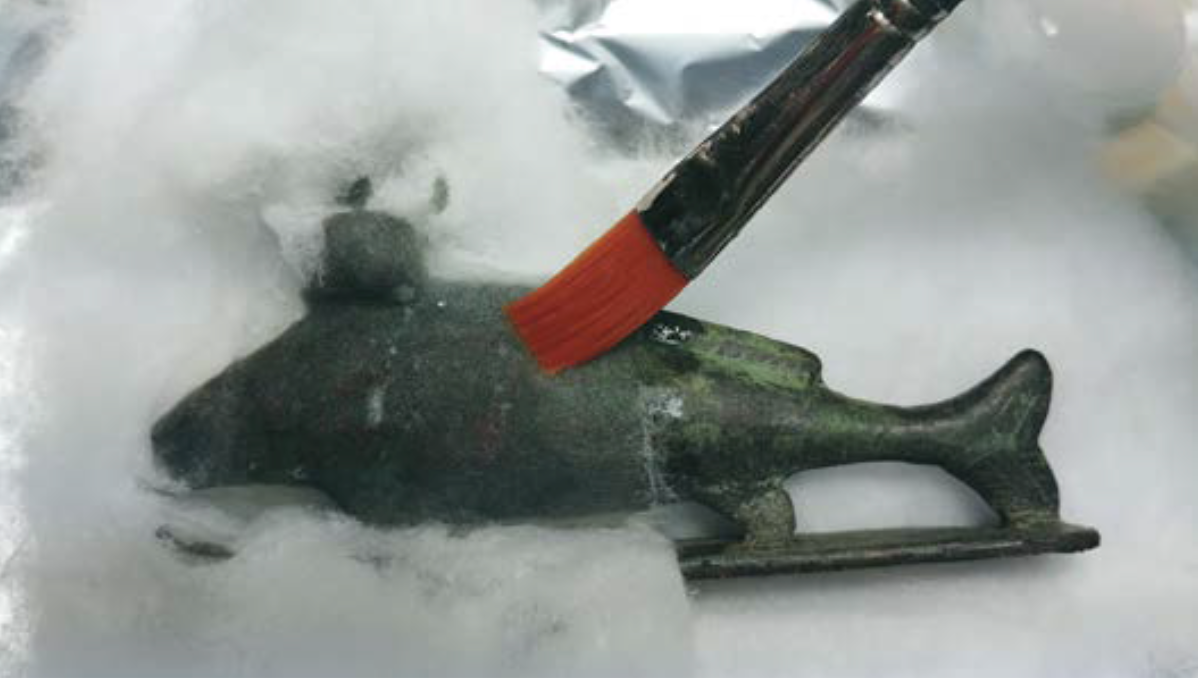

© 2026 Patrons of the Arts
in the Vatican Museums
Vatican Museums V-00120,
Vatican City State (Europe)
+39 0669864499
